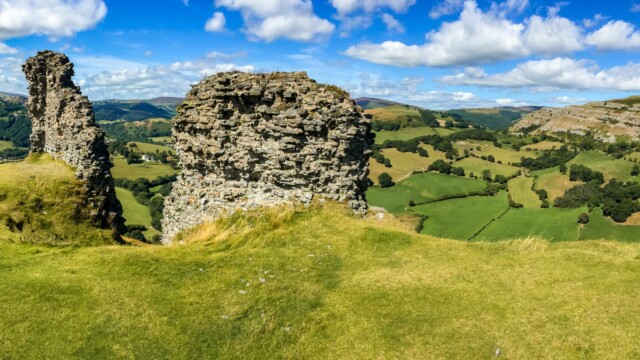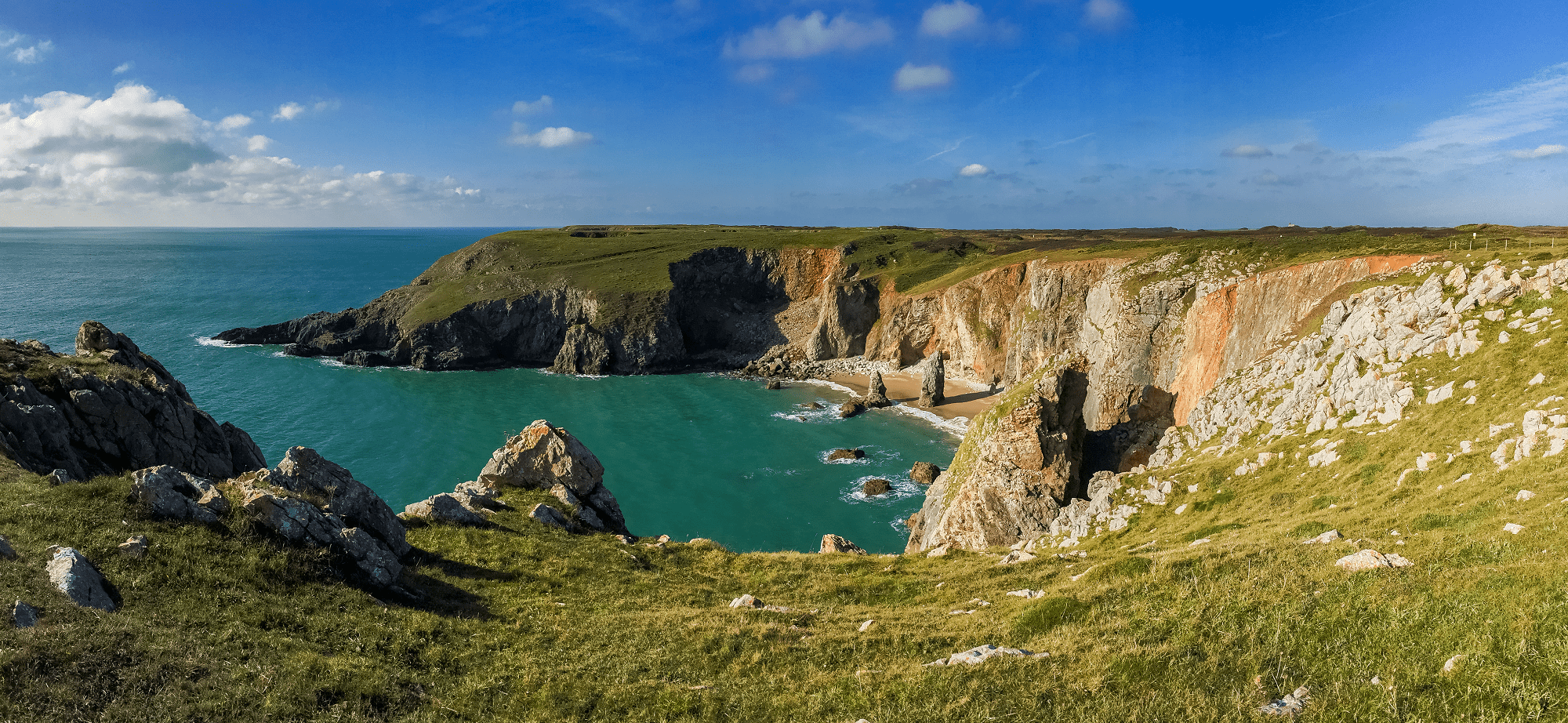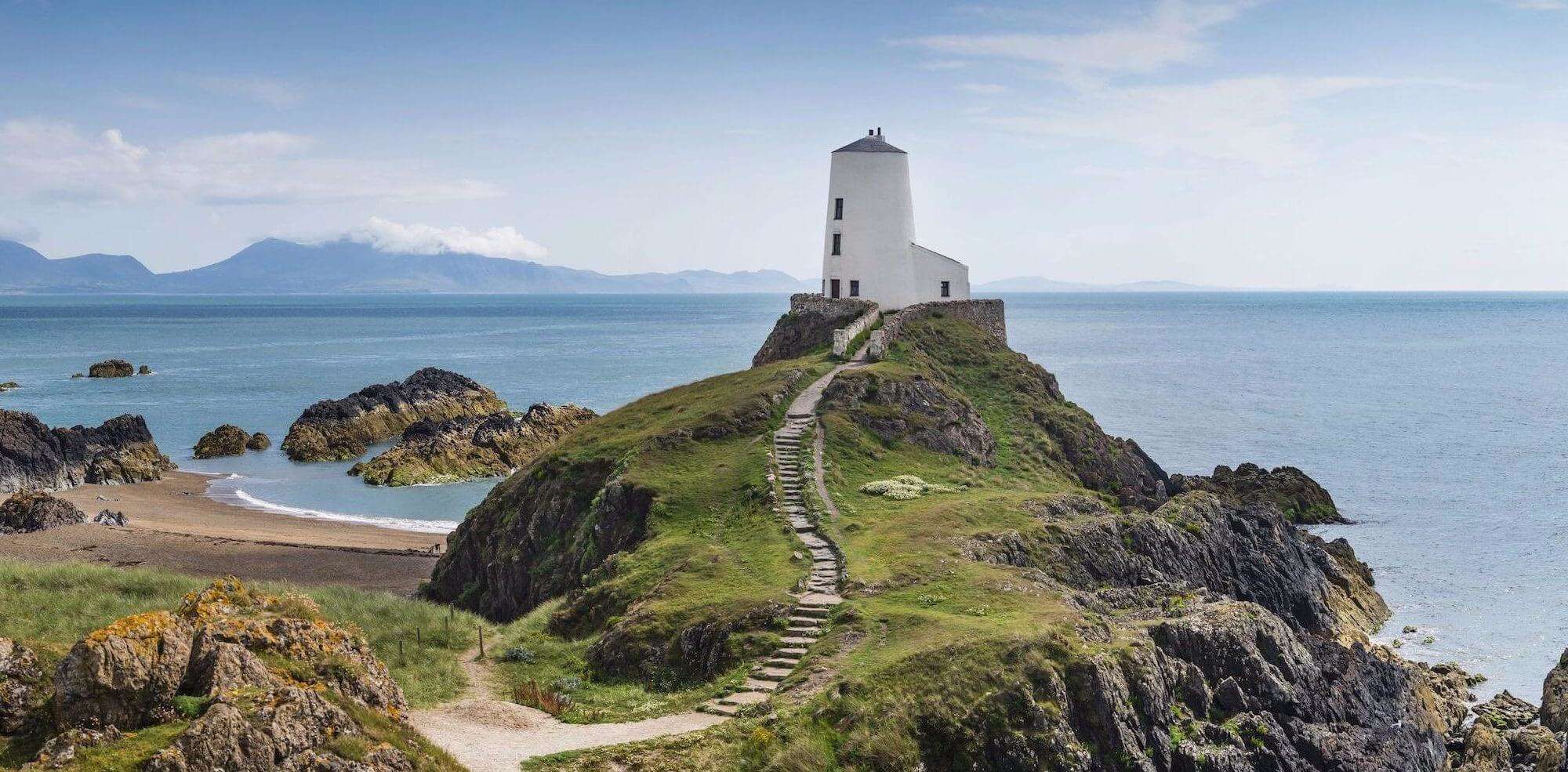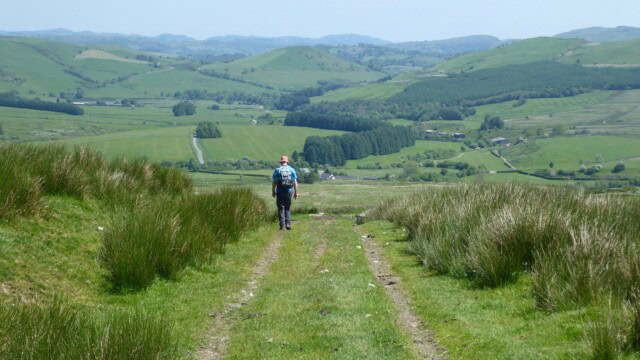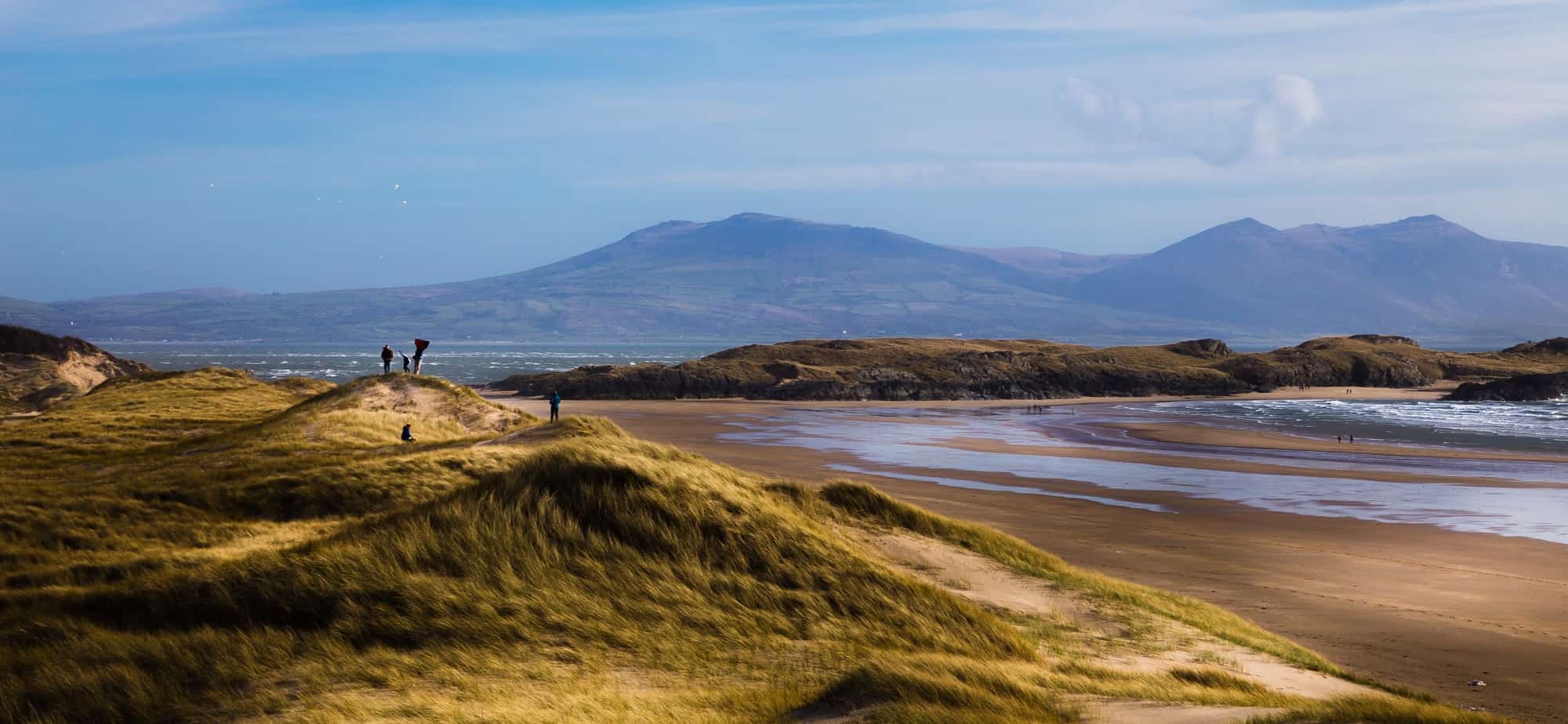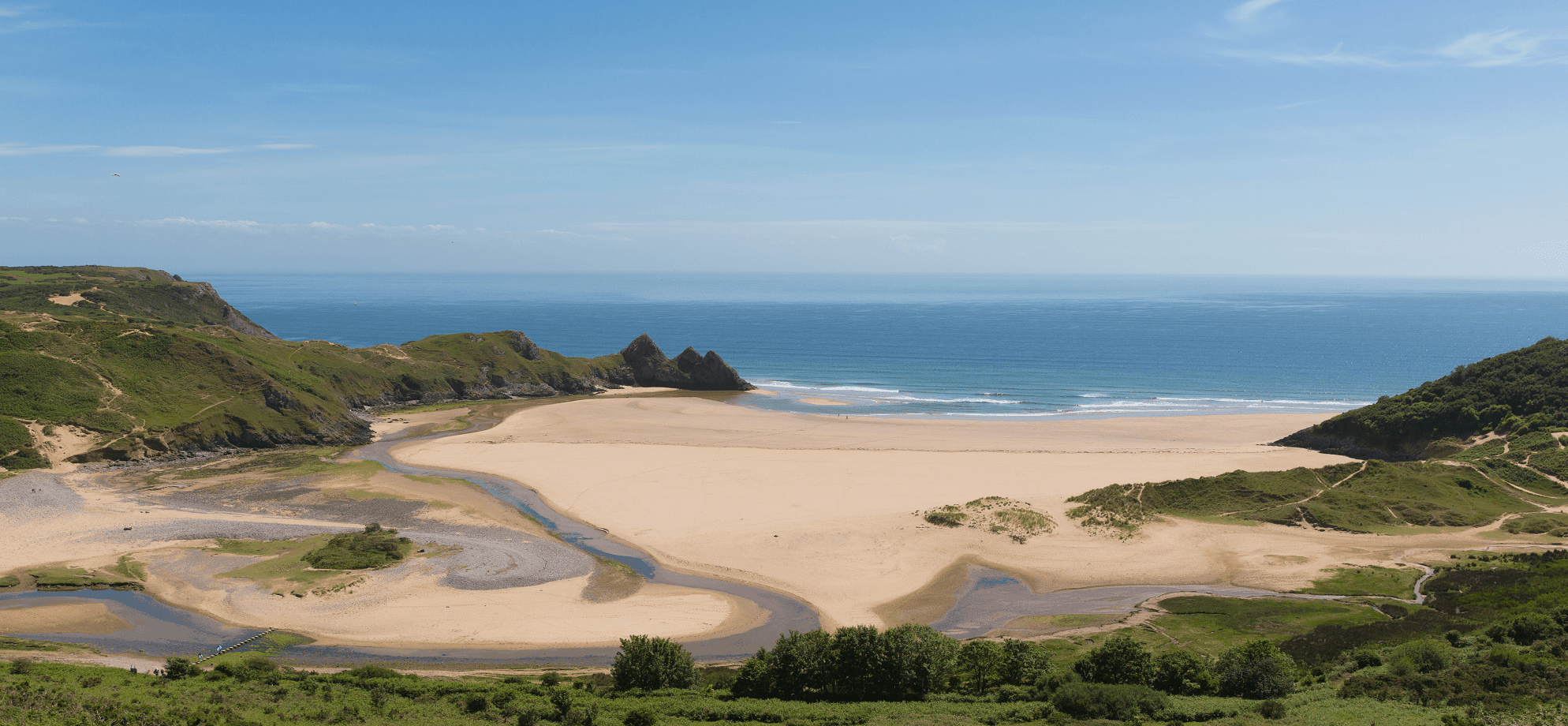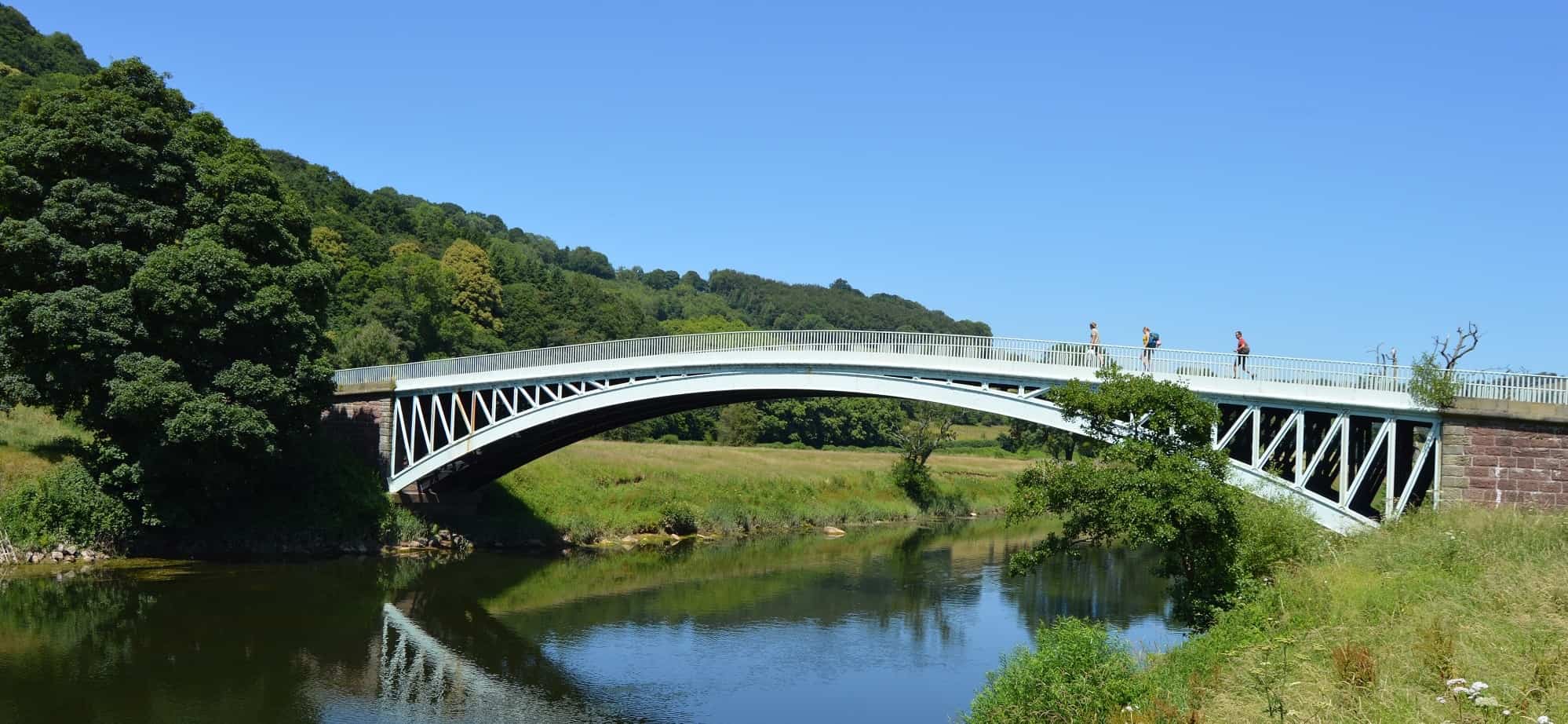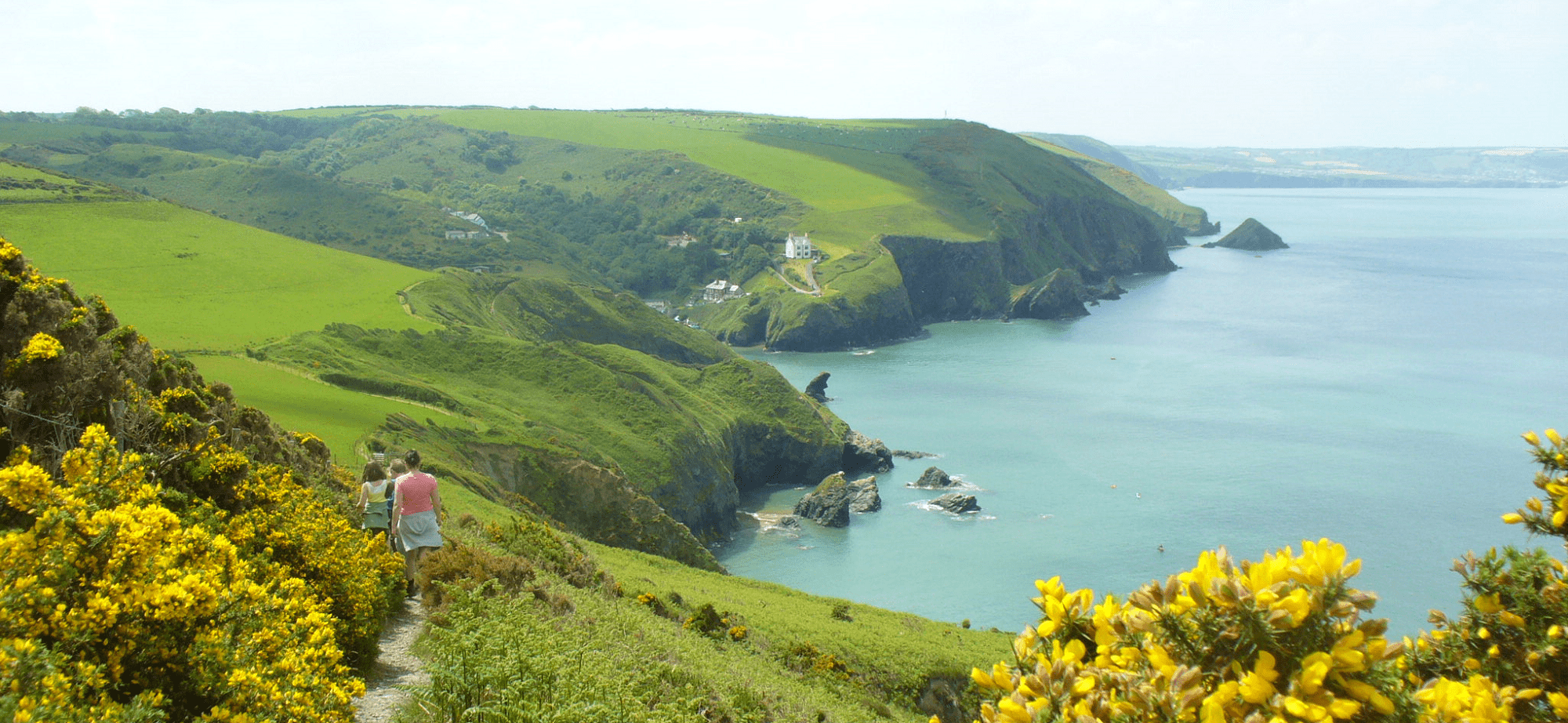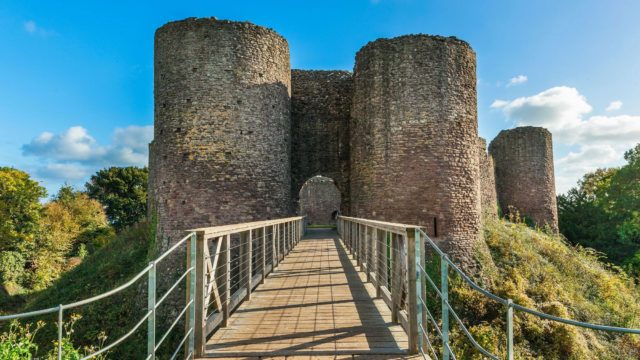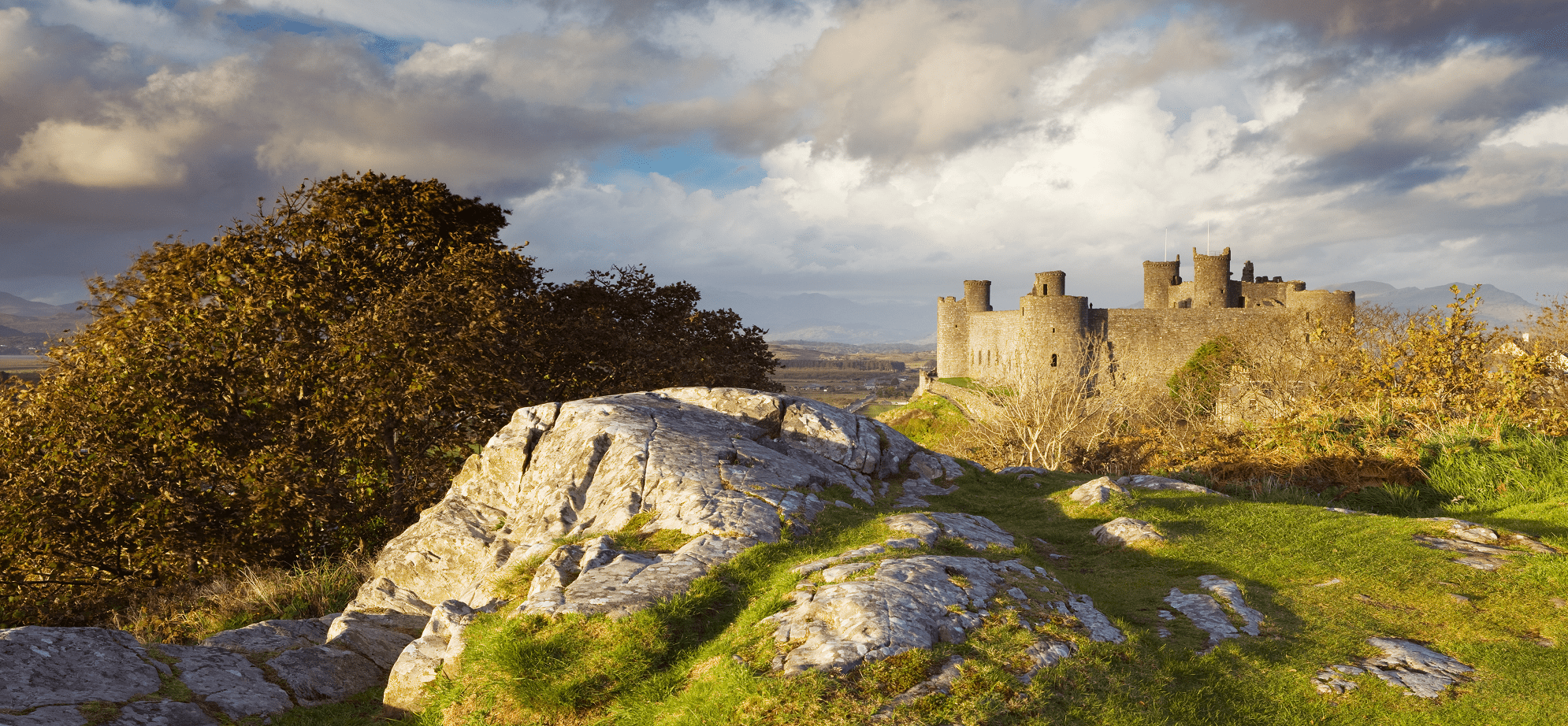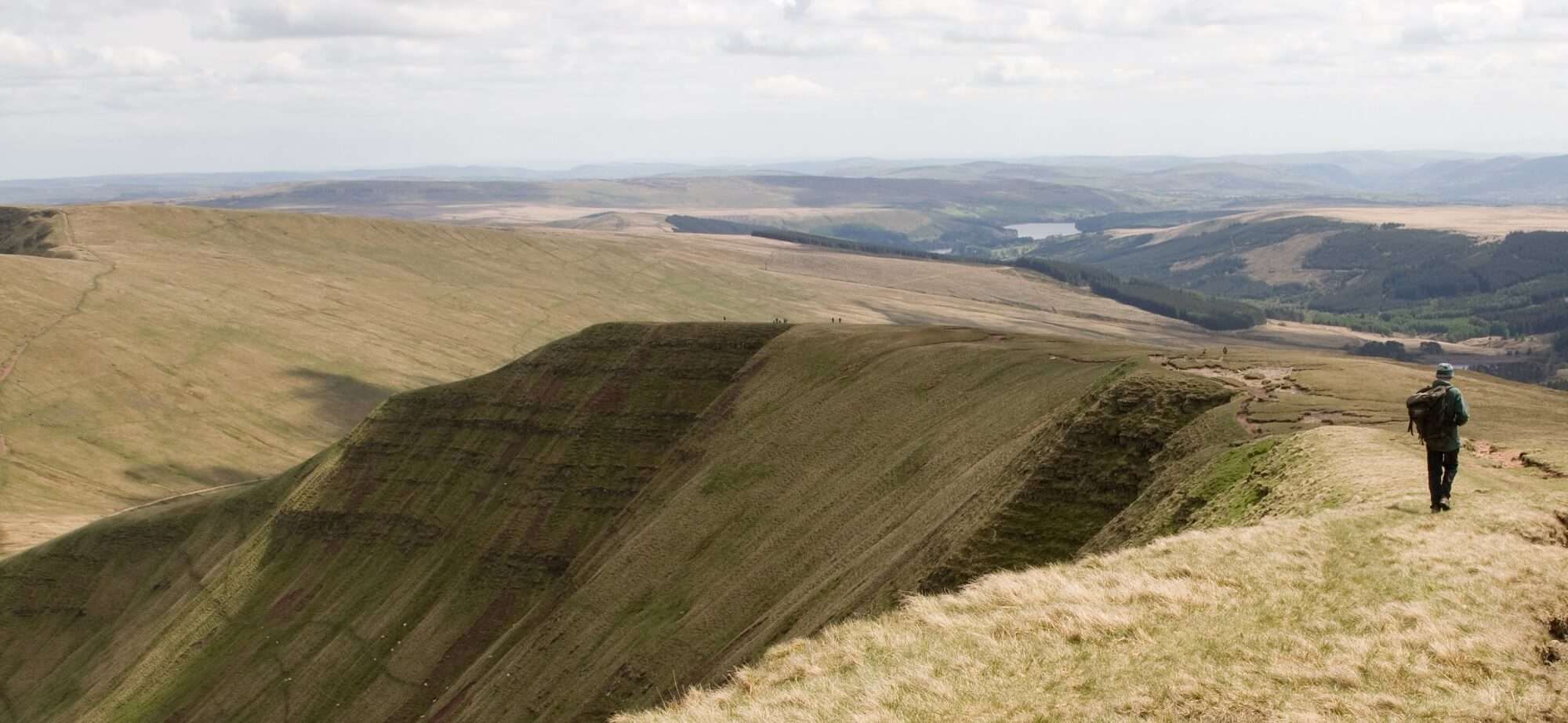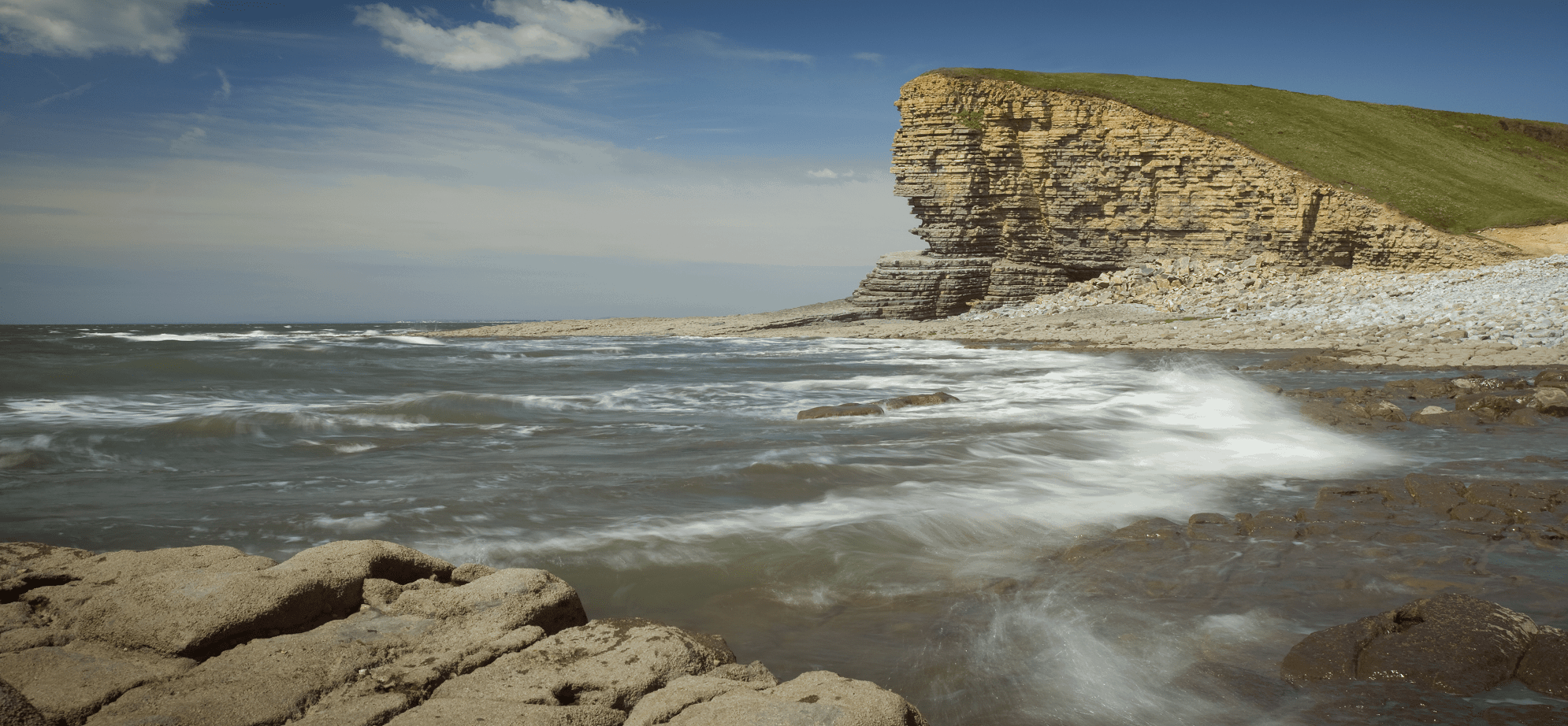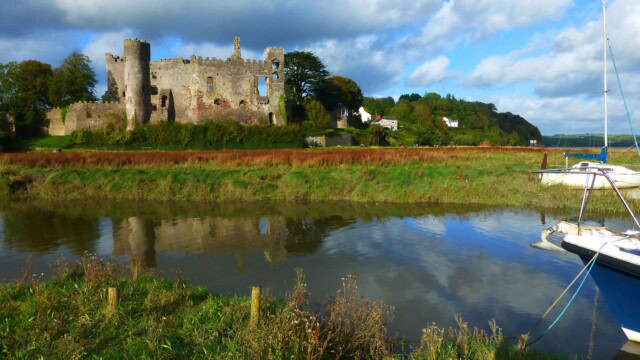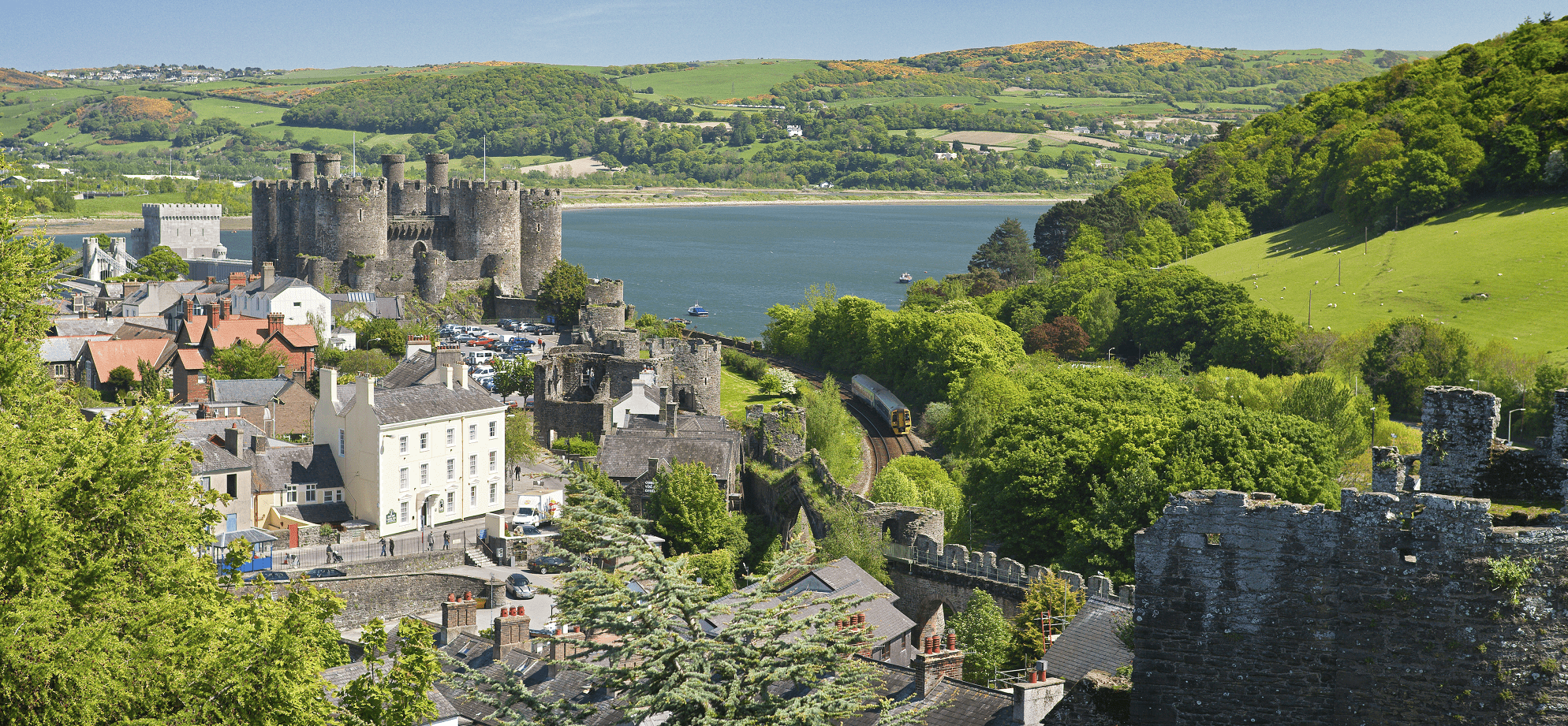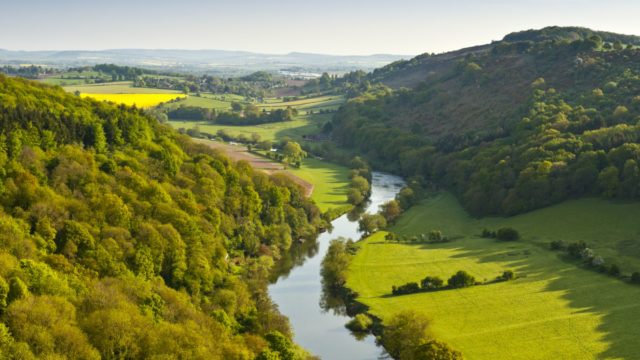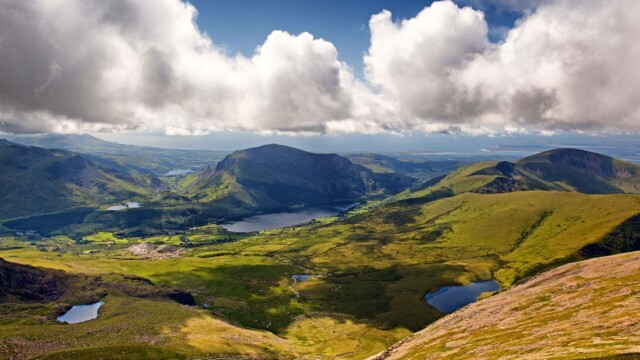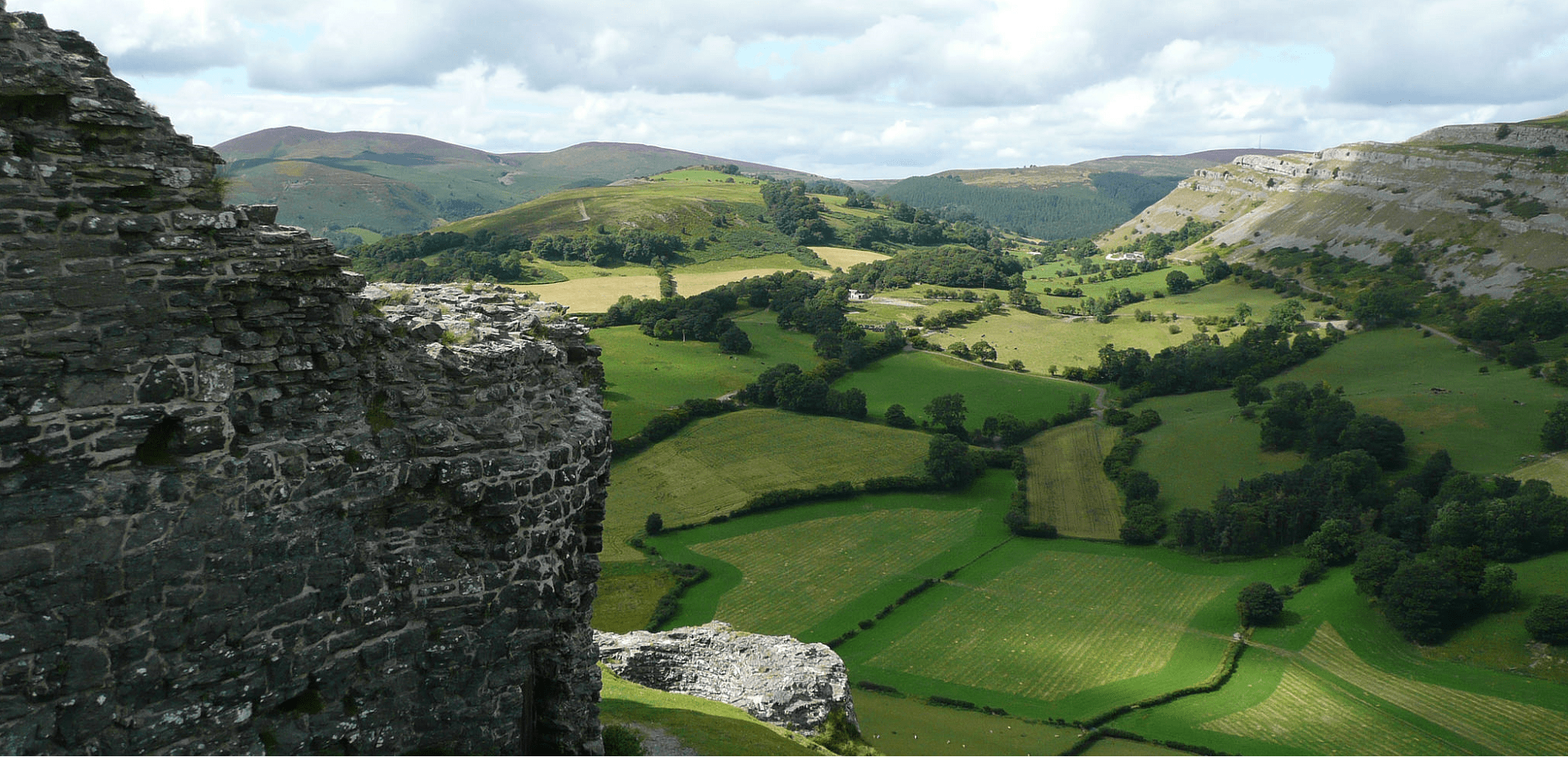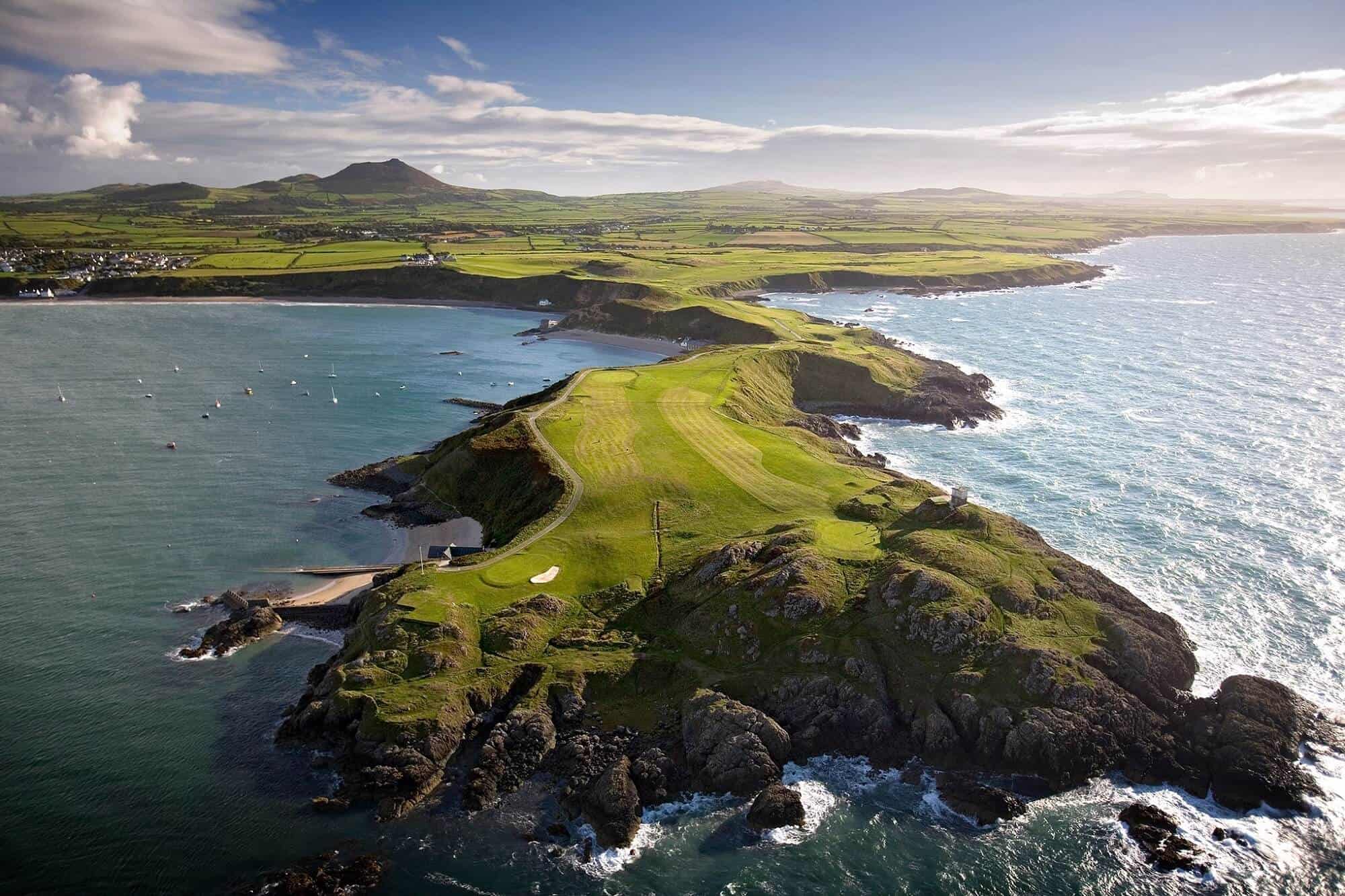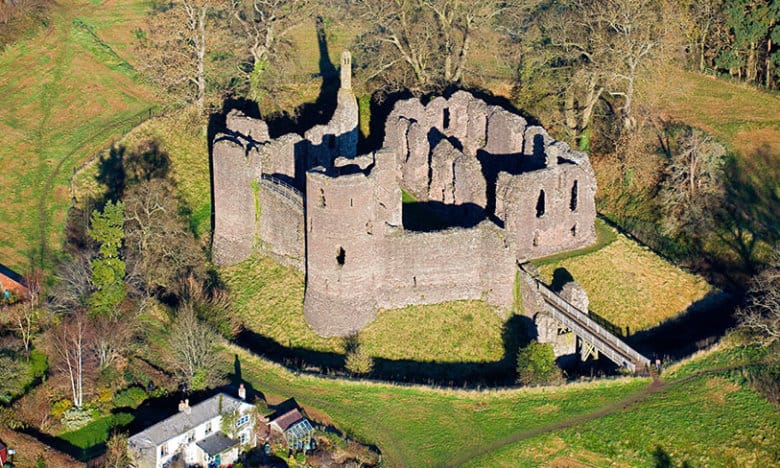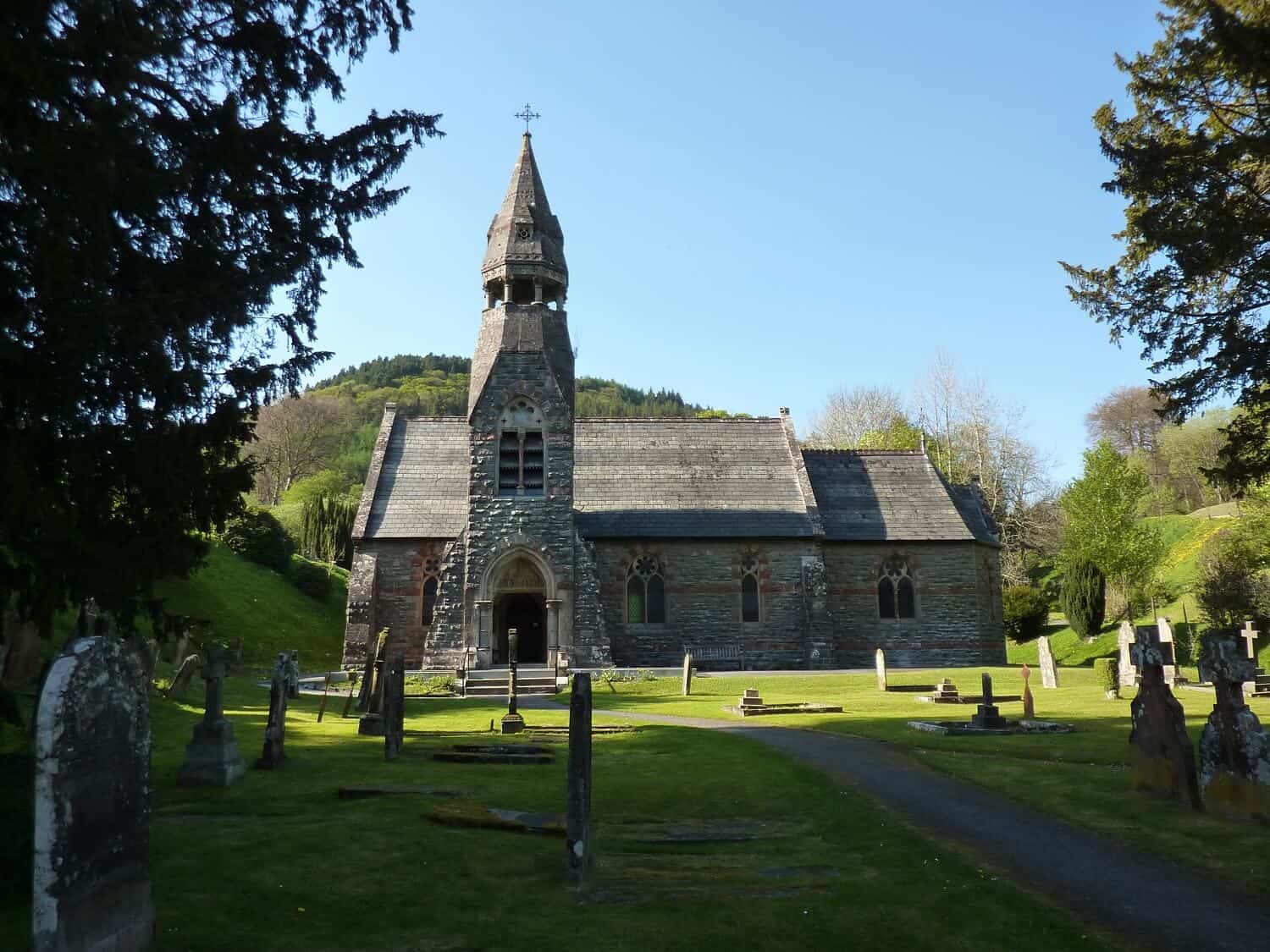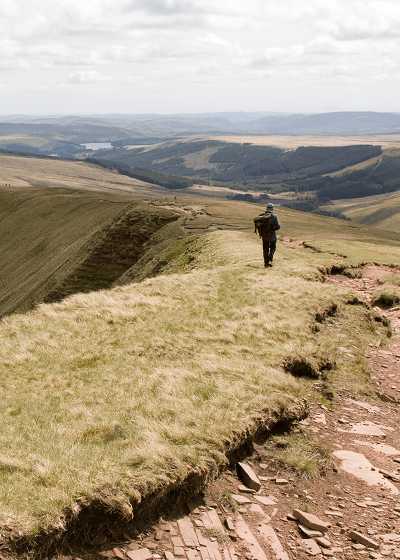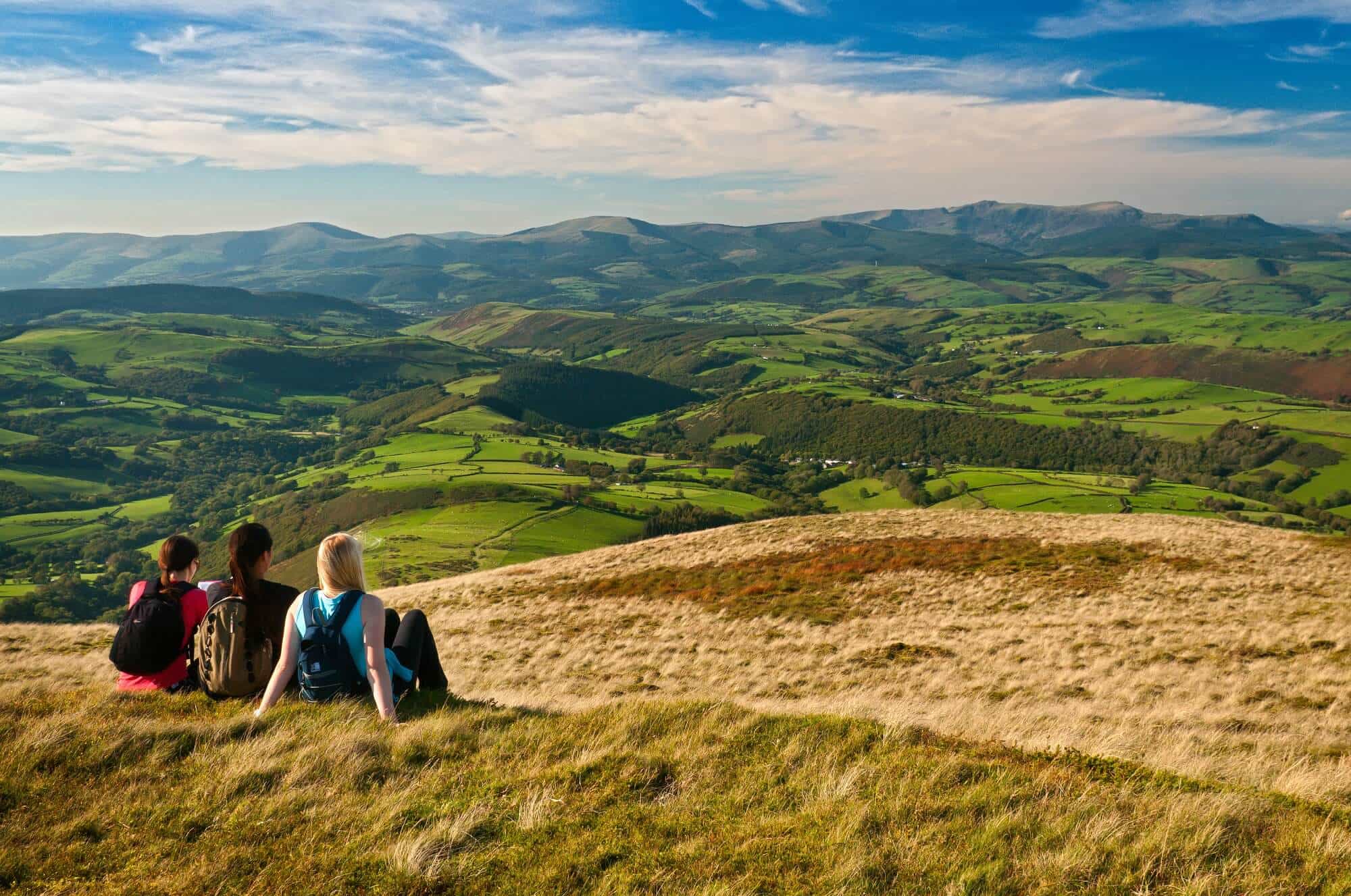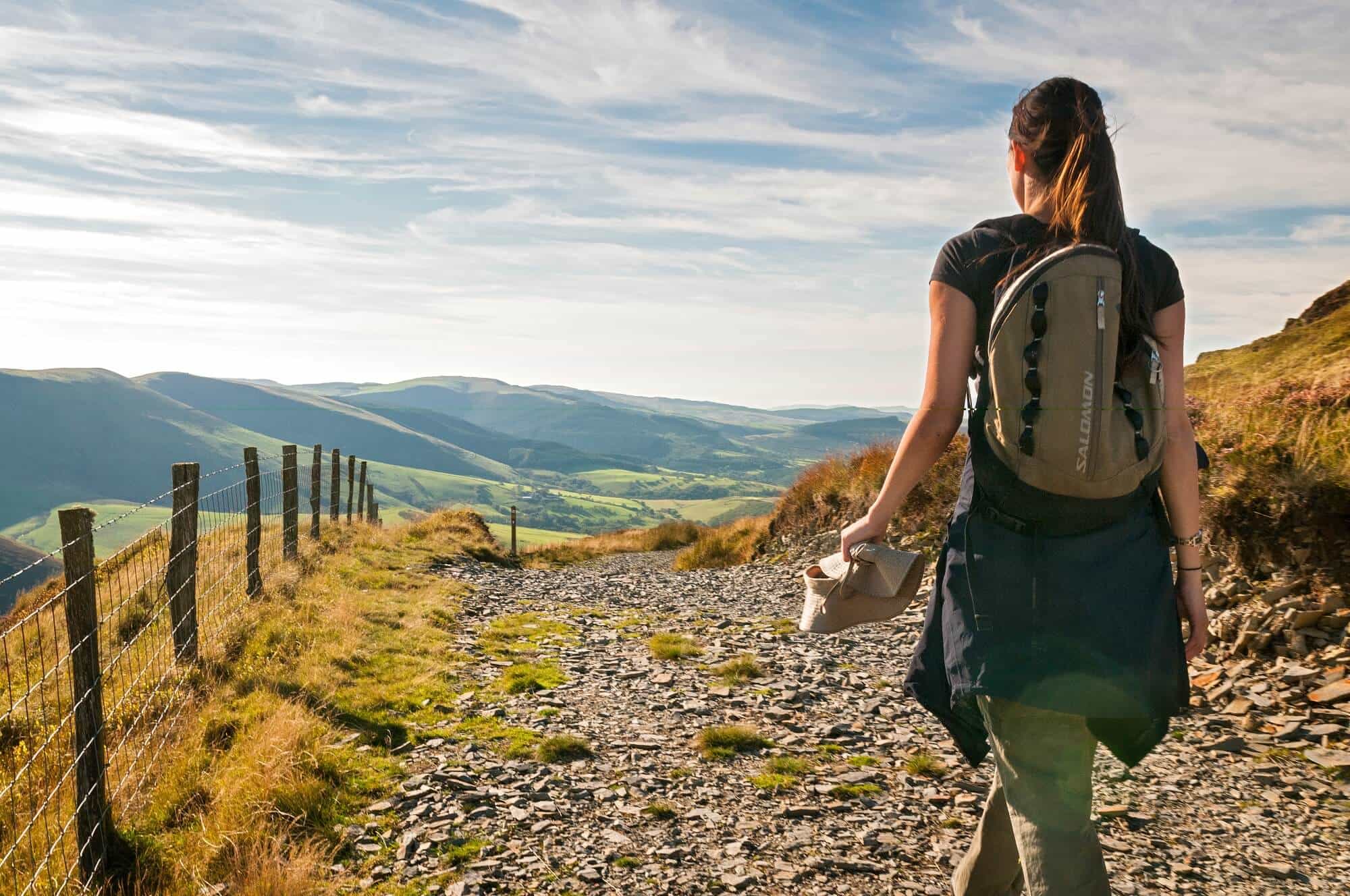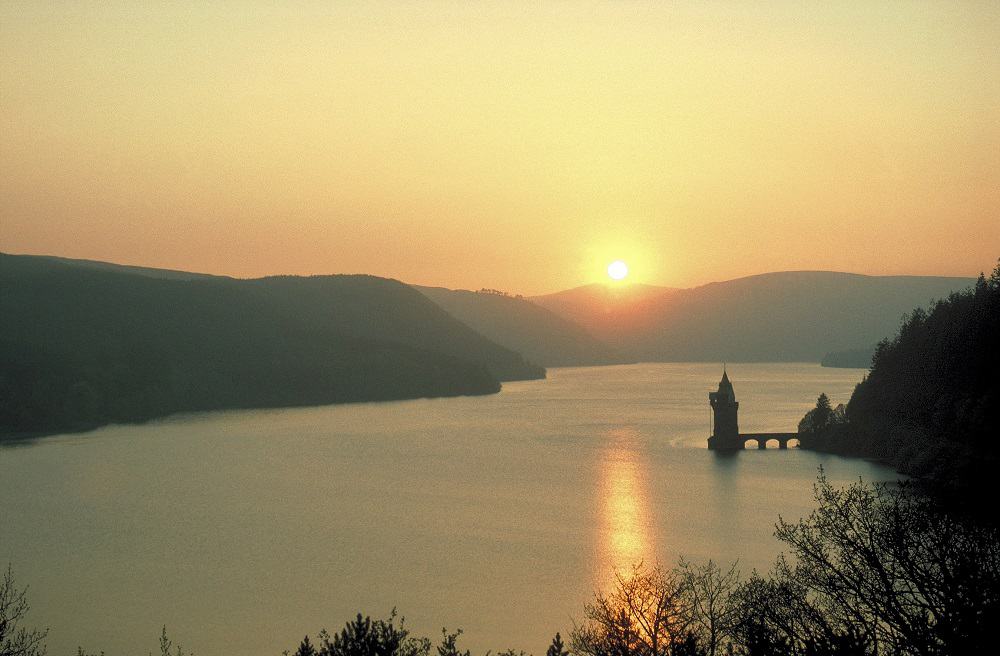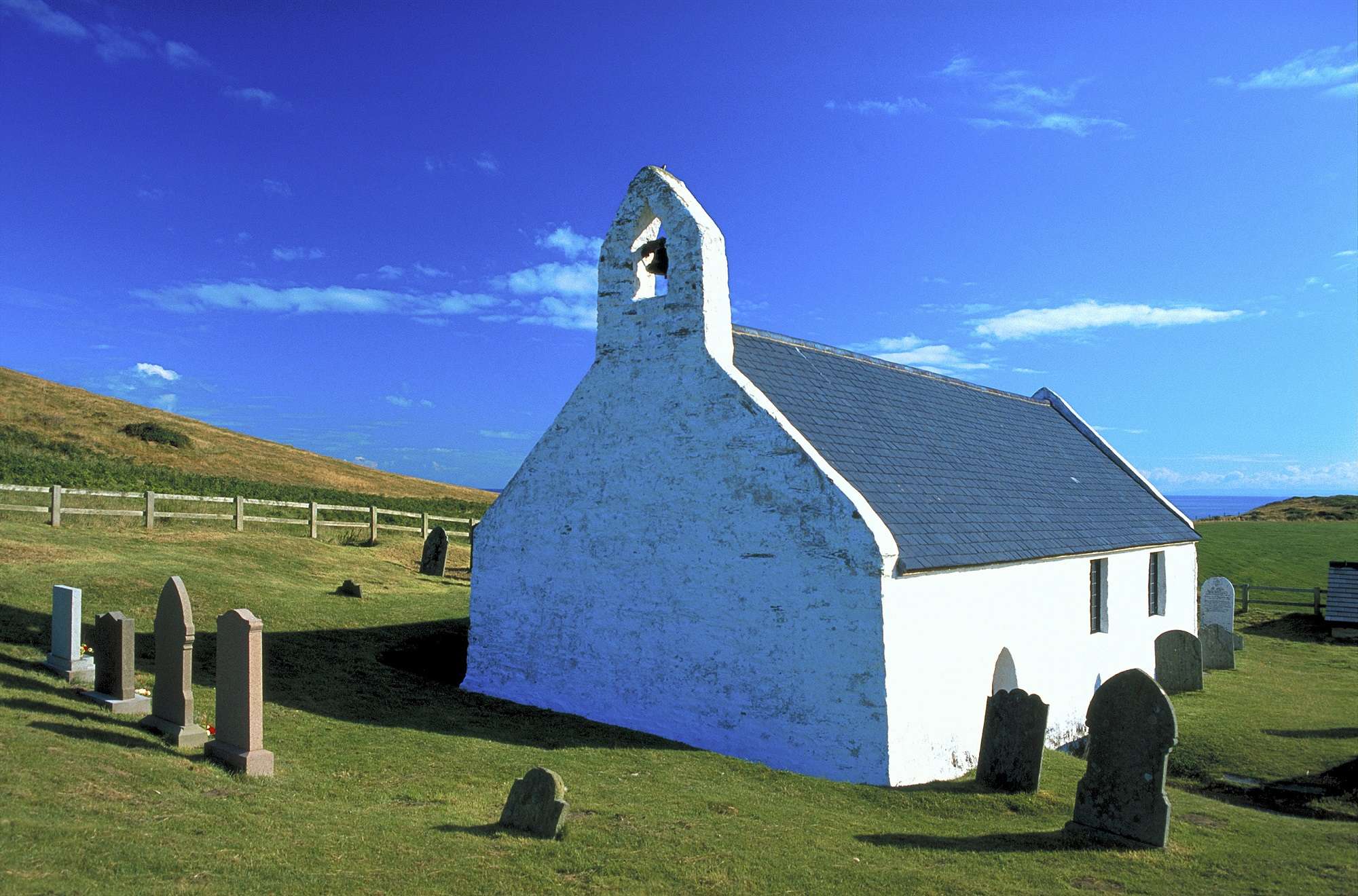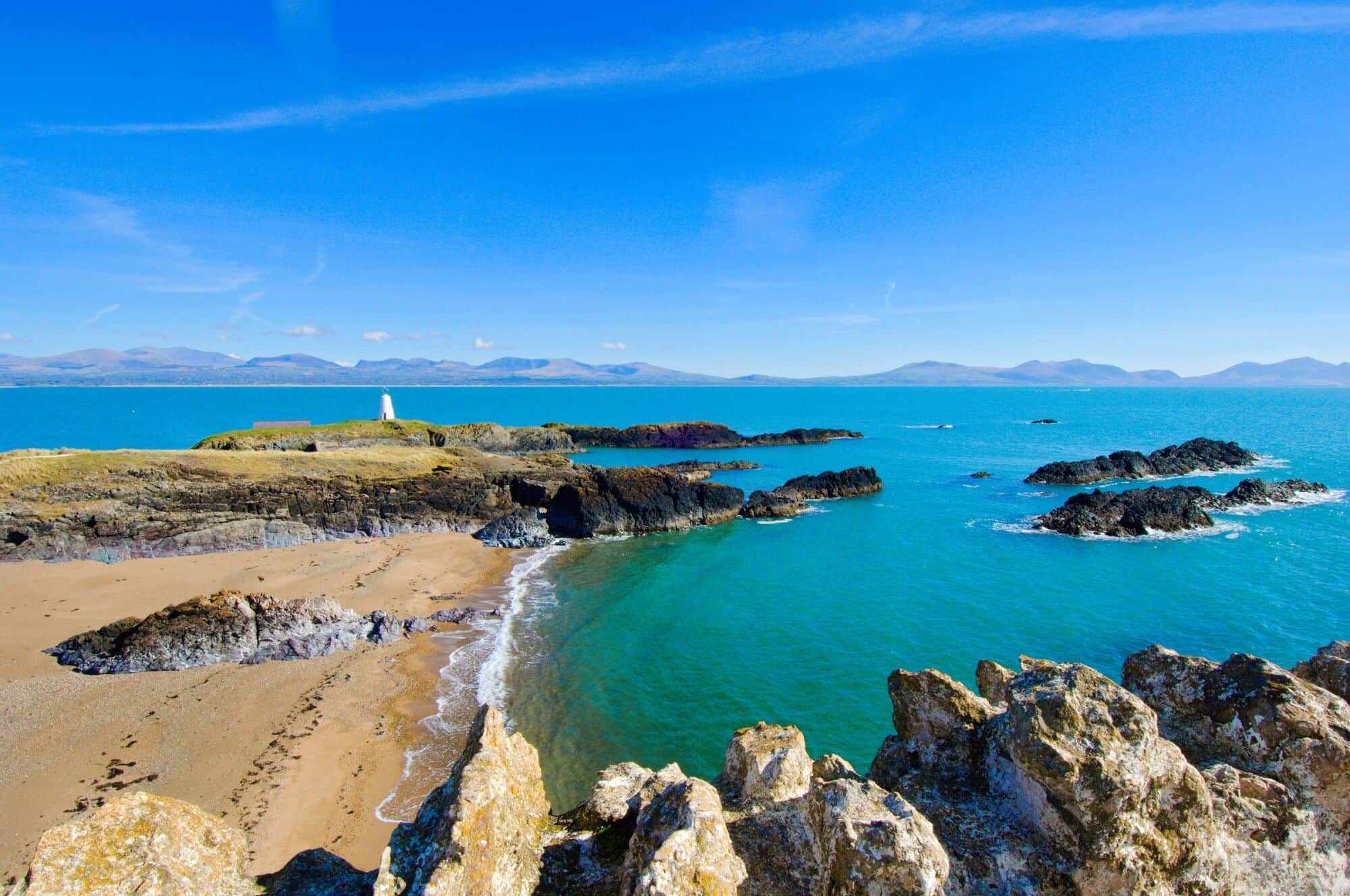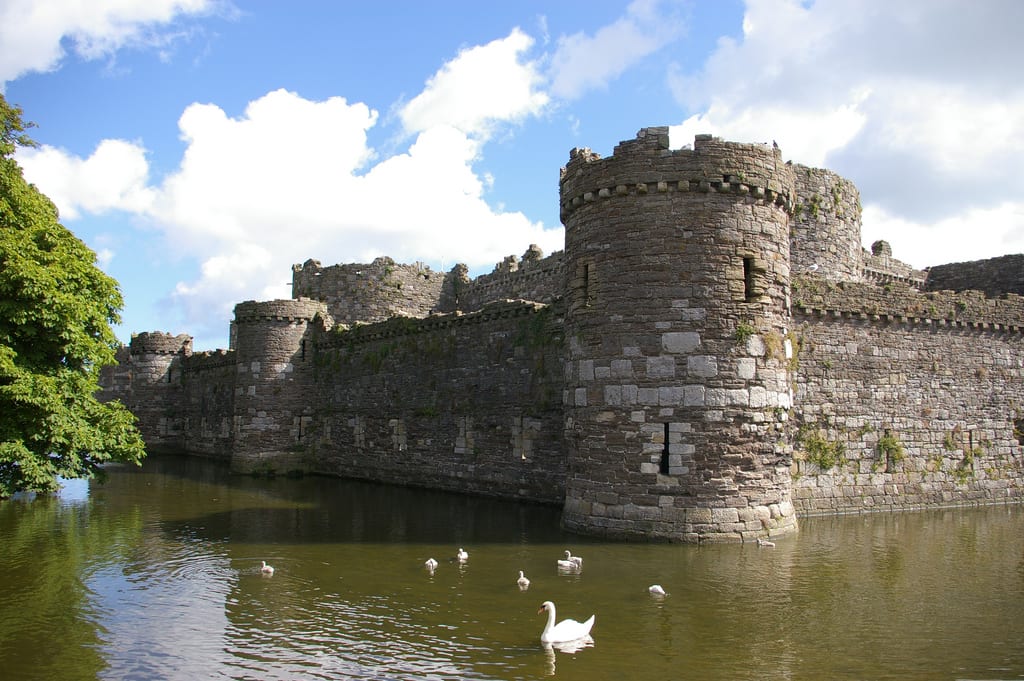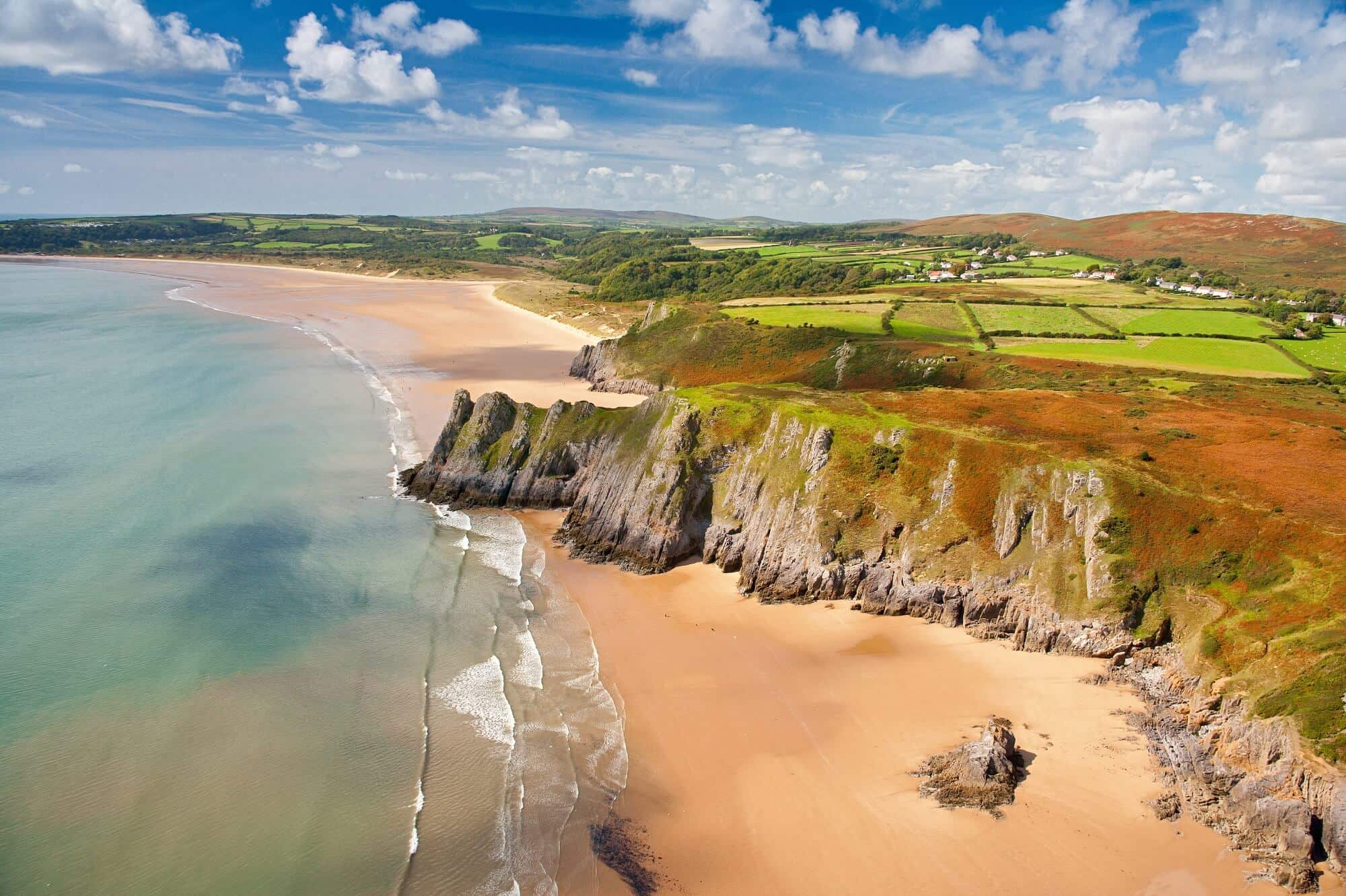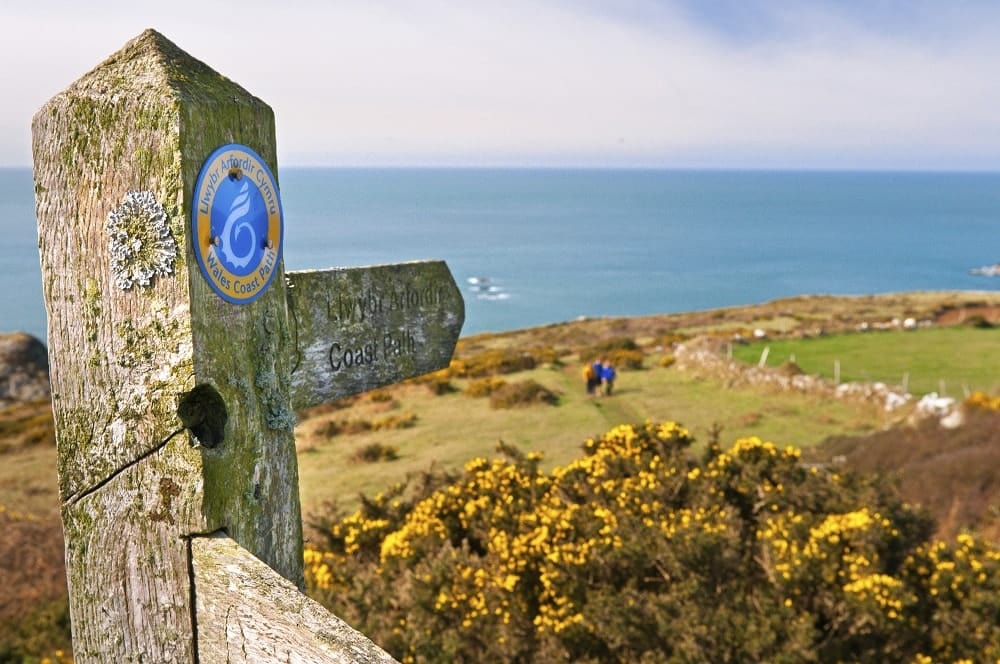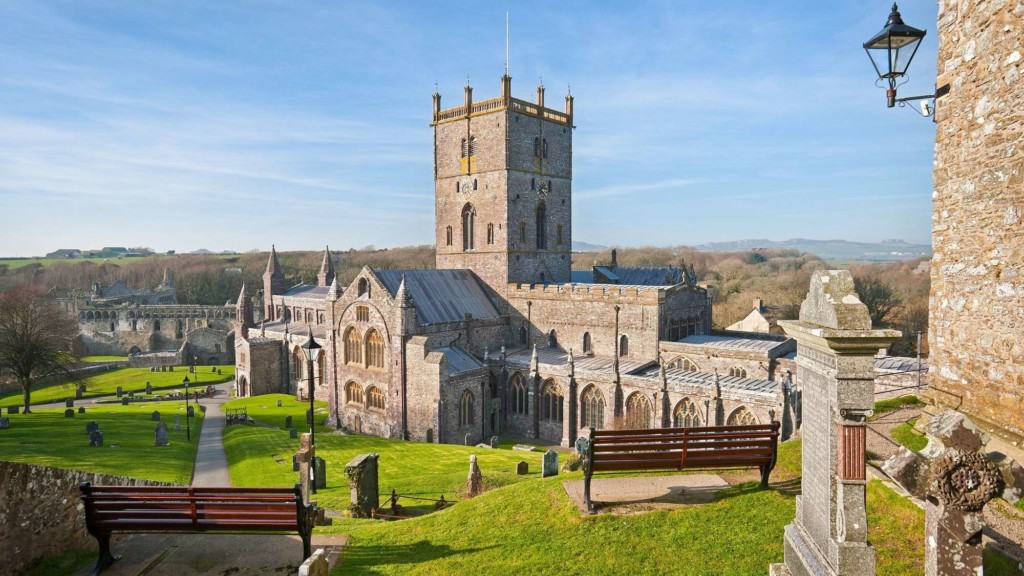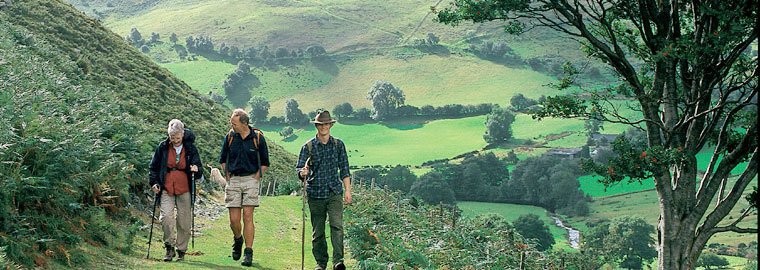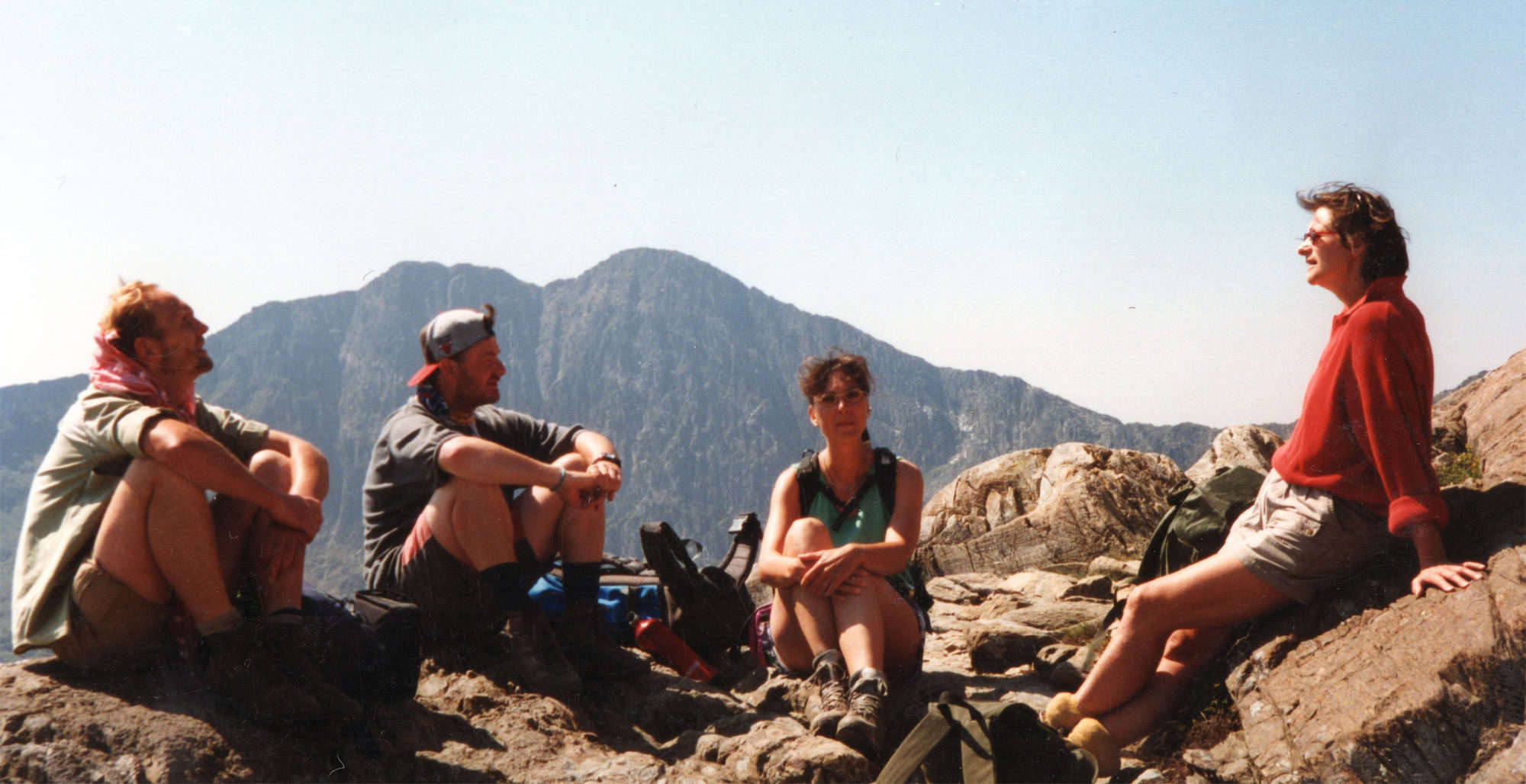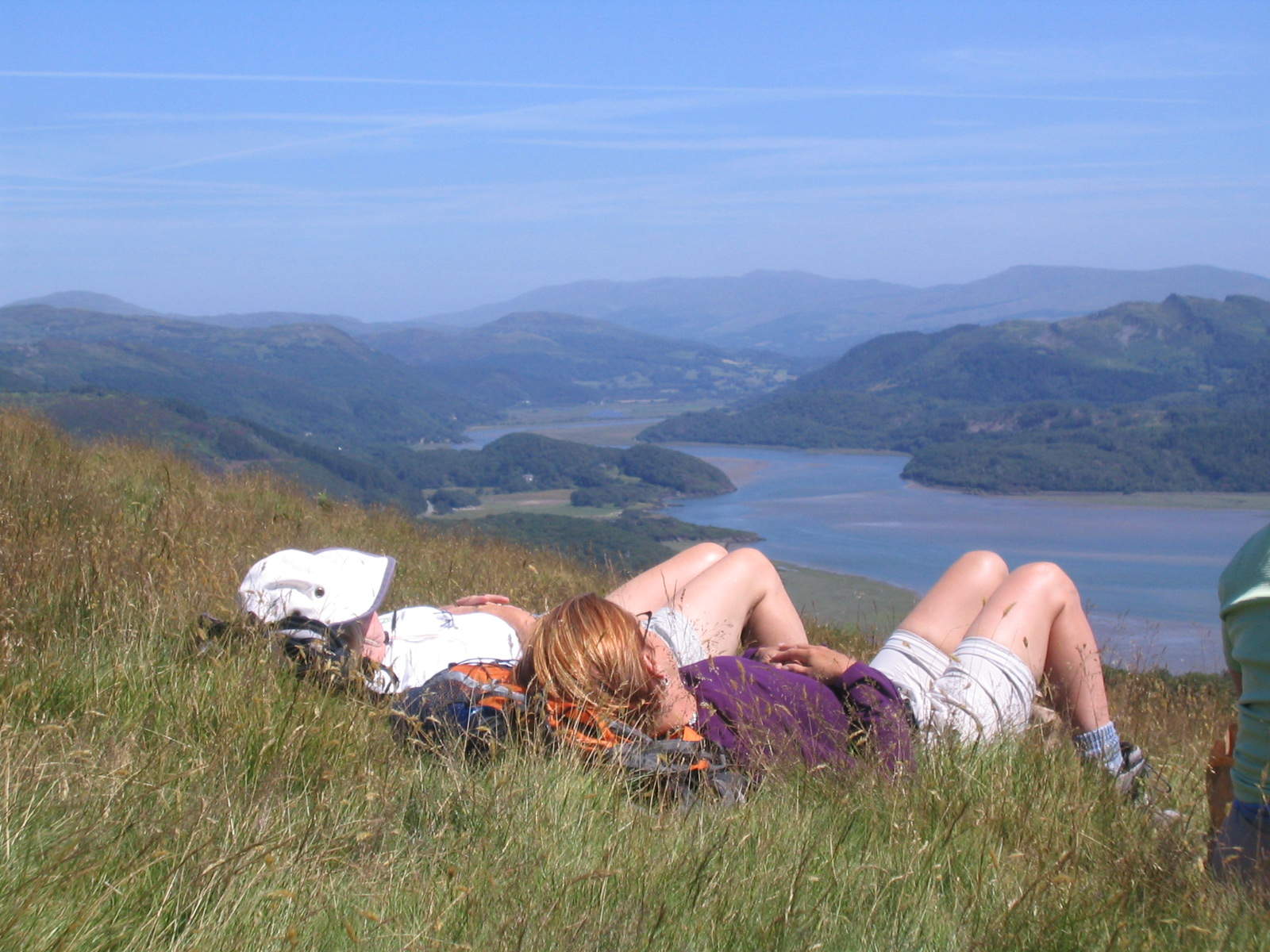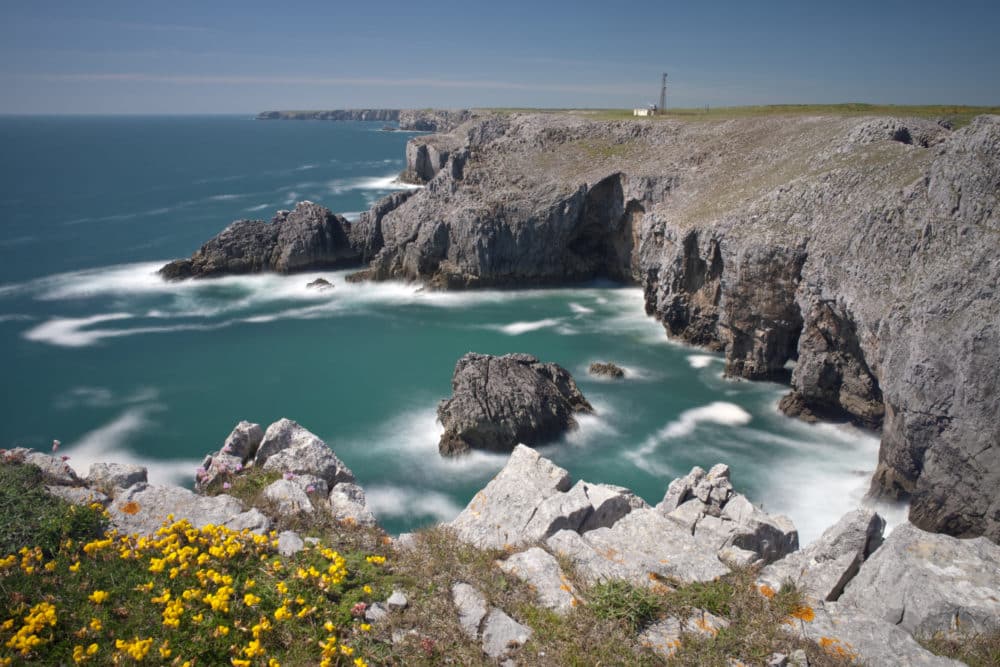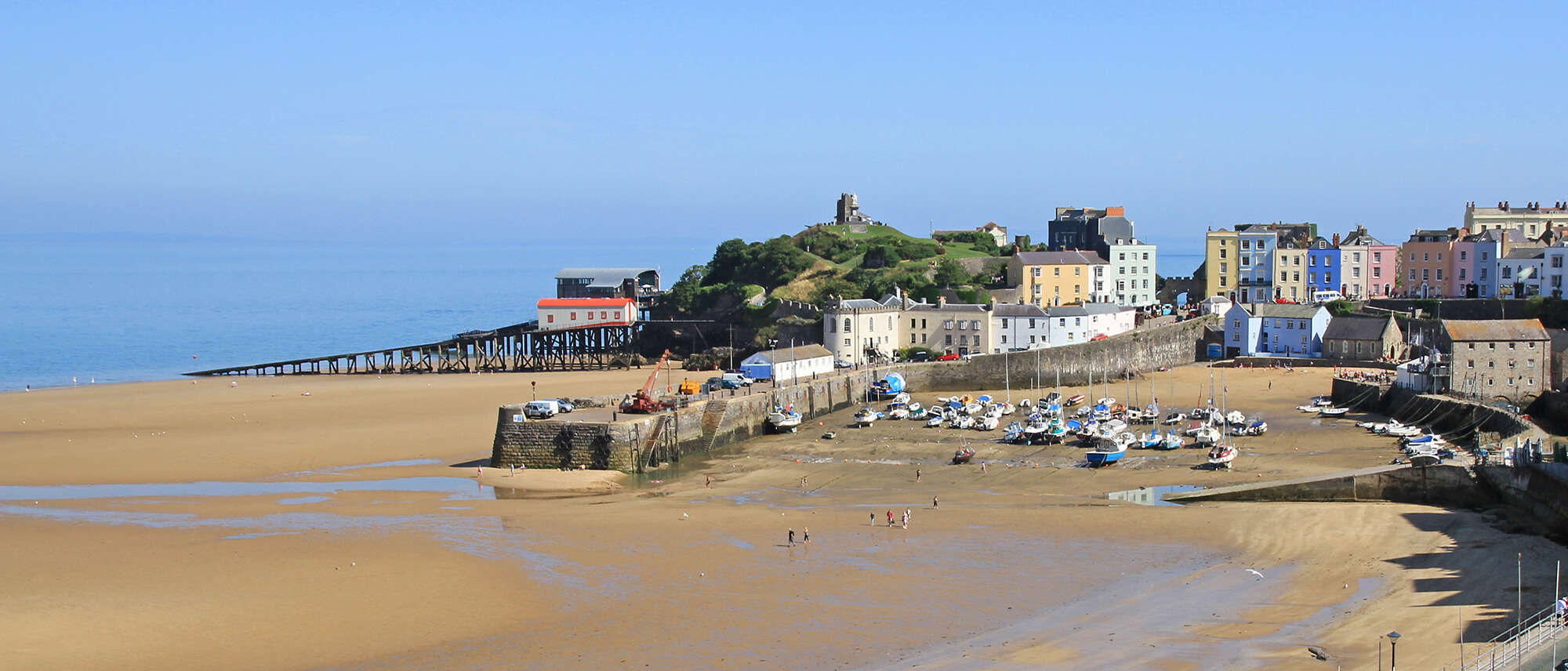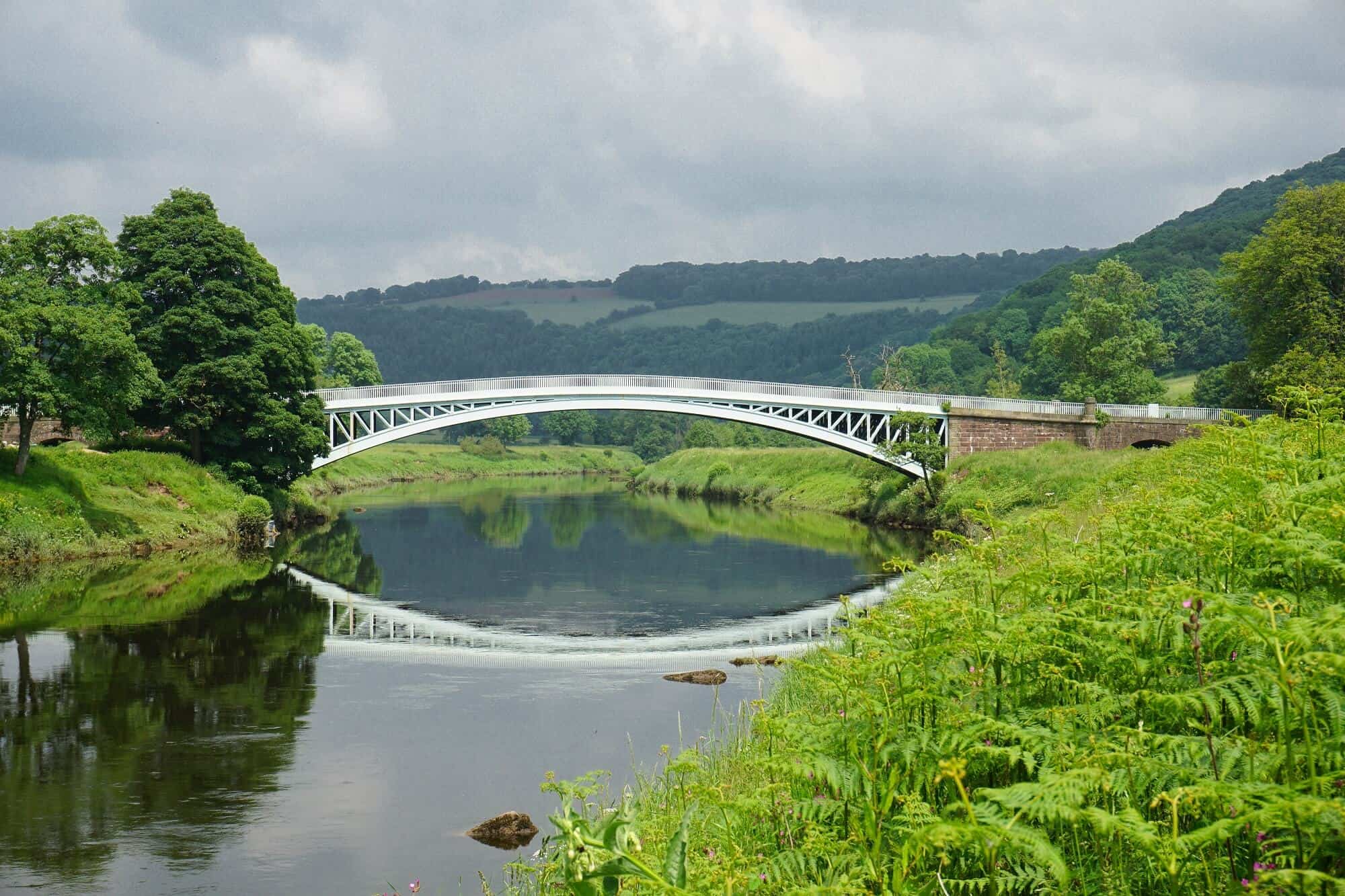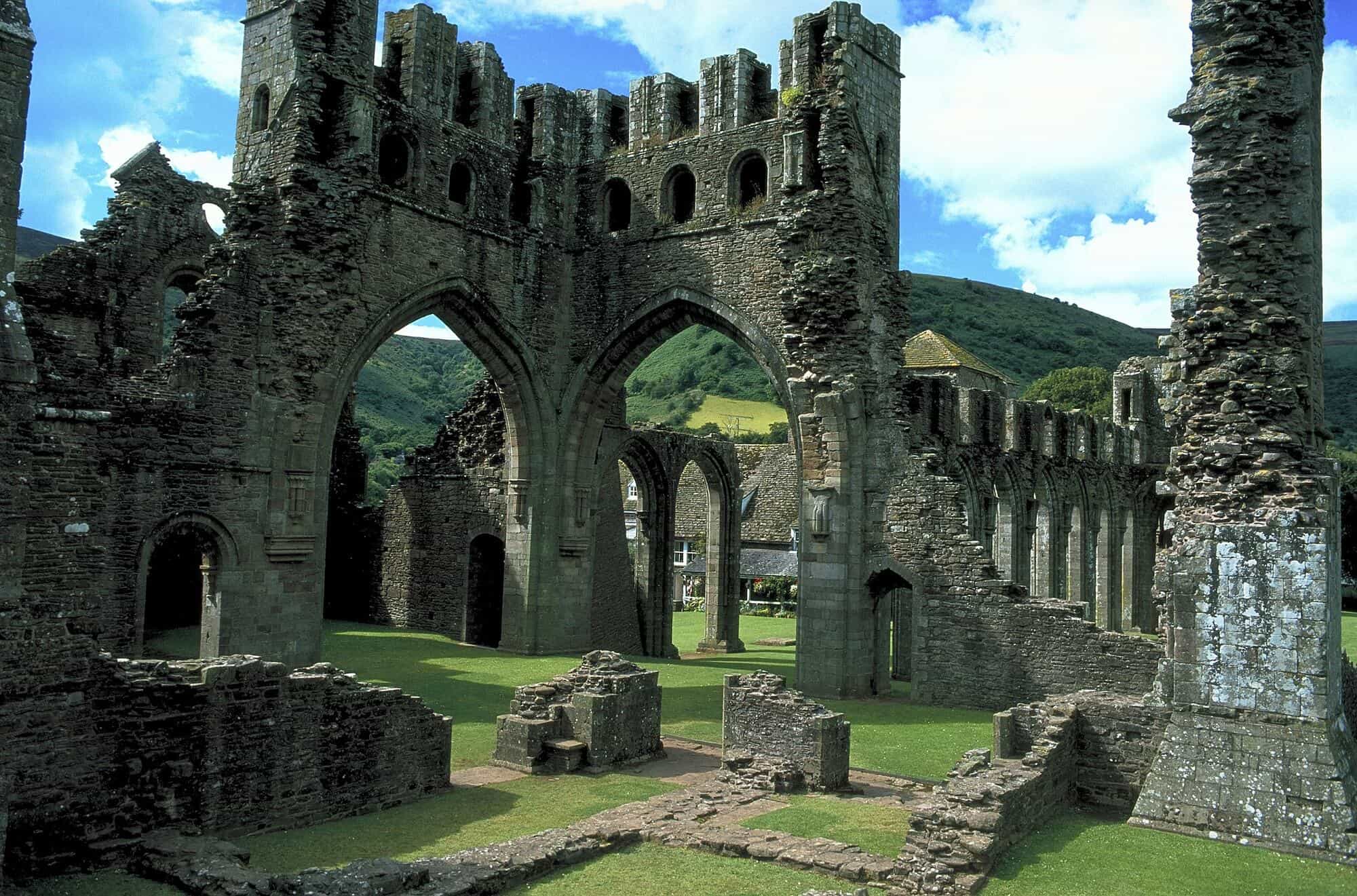Why Wales?
Wales, or Cymru as it is known in its native language, is one of the oldest, most beautiful, yet least known areas of the UK, where it is possible to walk for miles without seeing another soul.
This ancient, Celtic nation, situated to the west of England is one of the smallest countries in the UK, but it is amongst the richest in culture and heritage. Measuring just 170 miles long and 60 miles wide, a visit to Wales will allow you to see some of the UK’s most spectacular coastlines, climb rugged mountains, visit a never-ending supply of ancient castles and churches and hear Europe’s oldest living-language actively spoken, within just a few day's walking. Wales may not be quite as well known (or as highly visited) as her Celtic sisters, Scotland and Ireland, but as you immerse yourself in the vast green mountain ranges, the centuries of exciting history, and the wonderfully traditional and distinct Welsh communities, you will find a great deal to fall in love with. And all this within just a few hour's drive of London.
What's in a name?
2023 saw name changes to Snowdonia and Brecon Beacons National Parks with Snowdon also reclaiming its Welsh identity. Sixty six years after its designation as a National Park, Brecon Beacons became known as Bannau Brycheiniog pronounced Ban-eye Bruck-ein-iog; the name comes from the plural of ‘ban’, meaning ‘peak’ and ‘Brycheiniog’ refers to the kingdom of King Brychan - ‘The Peaks of Brychan’s Kingdom'. The changes come hand-in-hand with key initiatives including 16,000 hectares of peatland restoration and the planting of 1 million trees.
Welsh for Snowdonia is Eryri pronounced e-ryh-ree - a name that can be traced back to the 9th century and means ‘highlands’ not ‘place of eagles’ as is commonly believed. Likewise, Snowdon, derived from the Saxon ‘Snow Dun’, meaning ‘Snow Hill’ has reverted to its earlier name of Yr Wyddfa. Reference to early forms of the name Yr Wyddfa appeared in a charter drawn up by Llywelyn Fawr (Llywelyn the Great) in 1198. Discover more about the diplomat and warrior who united much of Wales here.
Here are our top 5 reasons to visit Wales.
1) The Coastline
Wales is surrounded on three sides by the Irish Sea and with this comes some of the most beautiful coastline you will find anywhere in the UK. The Jewel in the Crown? Pembrokeshire.
2) The Mountains
Striking, sharped edged peaks, hidden lakes and wonderful views. The mountains of Wales are quite unlike anywhere else in the UK. Visit the best of the bunch in Eryri National Park.
3) The Castles
Centuries of border battles have left Wales with a spectacular selection of Norman castles along its border and coastline. Nearly a thousand years old, these magnificent buildings bring the history of this tiny nation alive.
4) The Language
Wales is the proud home of Europe’s oldest living language, still spoken as a mother-tongue in many Welsh communities. The real trick is being able to pronounce the longest place name in Britain: Llanfairpwllgwyngyllgogerychwyrndrobwllllantysiliogogogoch!
5) The Capital
A beautiful castle, the home of Welsh rugby, male-voice choirs, Dr Who, endless supplies of fine food and culture. Cardiff, or Caerdydd, provides the perfect end to a holiday in Wales.

Essential information
Medical Cover
No vaccinations are required for entry into Britain. All citizens of the EU are entitled to free medical treatment under the National Health Service (NHS). If you are travelling from outside the EU you will receive free treatment from the Accident and Emergency Unit, but not if you are admitted into hospital or receive treatment at a general doctors surgery. Consequently health insurance is highly recommended.
Money
Wales uses the same currency as the rest of the UK, pound sterling (£). Most shops, hotels and restaurants accept all major debit and credit cards, although you should always carry a bit of cash on you, particularly when visiting more rural areas or when using small businesses. You will also find an ATM in most small towns.
Tipping is expected in most cafés and restaurants but not mandatory. Anything between 5% and 15%, depending on the quality of service is acceptable. It is not necessary to tip bar staff as you will usually order and collect your drinks at the bar.
Language
Although many people in Wales do speak Welsh, most can also speak English fluently and will usually speak to strangers or visitors in English first. In some areas of Wales you will not hear Welsh spoken at all (the south and borderlands), whilst in other areas you will hear it spoken regularly (north and west Wales). The Welsh are very proud of their language but are not offended if you do not speak it. If you would like to try they will be very happy to help you, but beware, it’s a tricky one! Place names are a good starting point.
Internet and Phone coverage
Because Wales is quite rural there are many areas where you will have limited mobile phone coverage and mobile internet. For this reason it is best to plan ahead and not rely on them when you are out and about. In towns and villages there will generally be phone reception but not always mobile internet. It is increasingly common to have free wi-fi in cafés, hotels and B&Bs but not guaranteed.
Welsh culture
Wales has a very distinct and strong culture, which they are very proud of. Some of this culture dates back to the Celtic period, but much of it has been formed in the last few centuries. There is a very strong sense of community across the country ranging in character from the farming communities in the north to the old mining communities of the south.
Key Facts:
Flag: Welsh Dragon
National Anthem: Hen Wlad Fy Nhadau (Land of My Fathers)
Patron Saint: St David (1st March)
National Flower: Daffodil
Population: 3 million
Capital City: Cardiff
Creative Arts: Arguably the strongest element of Welsh culture. The creative arts are ingrained in the Welsh identity through music, literature, and the visual arts. Particular highlights include the National and International Eisteddfod (national arts festivals held during the summer), Welsh Male Voice Choirs, the National Museum of Wales in Cardiff, the Hay Literary Festival in Hay-on-Wye and the Wales Millennium Centre. However, the arts are everywhere and we recommend visiting any art gallery or performance venue you pass on your travels.
Sports: Rugby is undoubtedly the most popular sport in Wales and plays a big part in the Welsh identity. Visit any pub during a Wales rugby match and you will discover a great deal about what it is to be Welsh (including the singing!).
Food: Being an agricultural country, Welsh food is generally very traditional. Wales produces some of the best-tasting lamb in the world and it is the definite ‘star of the show’ on any Welsh menu. Other highlights include, Caerphilly cheese, Welsh Rarebit (similar to cheese on toast), Laverbread (a seaweed puree), Welsh cakes, ice cream and bara brith (a welsh fruit loaf).
Travel Documents:
Wales has the same immigration and visa requirements as the rest of the UK, which will be checked upon your first arrival in the UK. If you arrive in England or Scotland first, you will not need to go through passport control again when you enter Wales.
Getting around
Celtic Trails will arrange necessary transfers for yourself and your luggage for the duration of the walk. This is included in the price of the holiday, but does not include transport to the start of the walk. We are very happy to arrange private transfer to the start of your walk at an additional cost. Alternatively, there are the following options:
By Train: There is a very good train network in the UK and it is the most popular form of public transport because it is comfortable, safe and fast. It is also suitable for travelling on with large pieces of luggage.
In Wales, there is a good train service running along the north and south coastlines, and a less regular service running along the border and into mid-Wales. It is possible to get to most large towns in the UK by train, but you may need to change trains a few times. The best place to plan your journey, check train times and prices is via the National Rail website www.nationalrail.co.uk. If you would like advice on which is the nearest train station to the start/end of your walk please get in touch. Train tickets can be bought on the National Rail website or at the train station on the day.
Coach: Coach travel is often one of the most affordable ways of making long journeys across the UK (but not necessarily the quickest). National Express and Megabus are the main long distance coach companies in the UK, serving major towns, cities and airports. Tickets for long distance coach journeys should always be bought in advance from the company’s website.
www.nationalexpress.com
uk.megabus.com
Bus: Buses (generally smaller than coaches) are used across the UK for shorter journeys. There are thousands of bus routes and you will find a service running through almost every town in Wales. They are particularly useful in more rural parts of Wales where there is not a train service. Tickets are bought from the bus driver.
Timetables in Wales can be checked at www.traveline.cymru. If you are at all unsure, we are very happy to offer advice on bus routes.
Taxi: Travelling by taxi is not cheap but it is the most convenient way of travelling if you only have a small number of journeys to make. If you are in particularly rural area or need a taxi late at night, it is advisable that you book a day or two in advance. Taxi journeys should always be booked in advance unless you are in a major city or airport. Celtic Trails are very happy to provide you with the numbers of local, trustworthy taxi companies and also to book a taxi if enough notice is given.
Car: If you plan to drive to the start of your walking holiday, please let us know as we can provide advice on where to leave your car whilst walking.

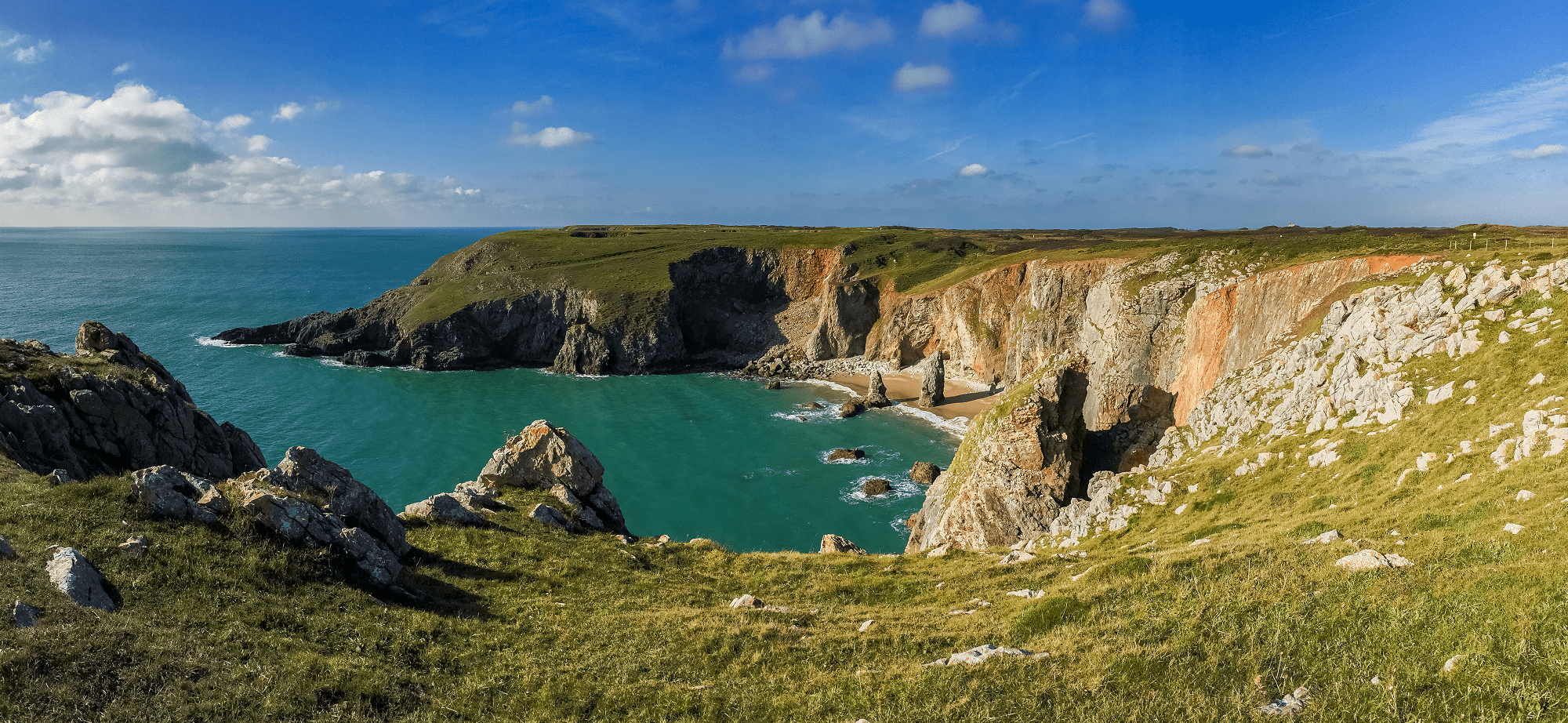
 Destination
Destination
